Vanguard Squad Part 2
(A/N: All there of this OC characters belong to WWIIFanHistory. Thank him for making theses OCs and their bio.)
==========
Name: Sophiel 'Sofie' von Hohenzollern
Full Name: Sophiel Friedrich Wilhelm Altair Bismarck
Looks:
(Child)

(Teenager)

(Adult)
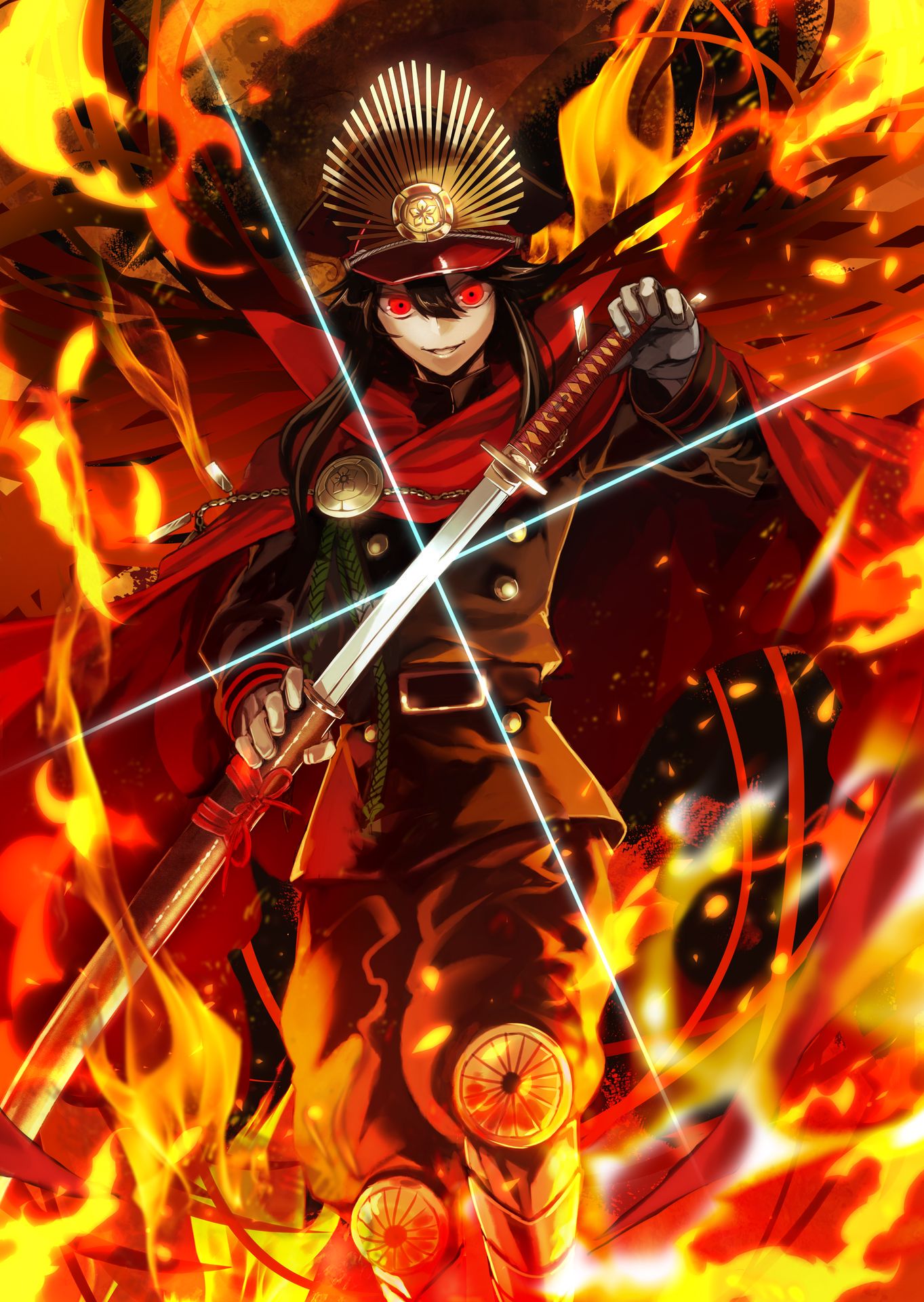
Nicknames:
-Die Eiserne Prinzessin (The Iron Princess)
-Teufelsstrategin (Demoness Strategist)
Species: Celestial (Half-Archangel / Half-Goddess)
Nationality: German (German Empire)
Ethnicity: German (Prussian) – Slavic (Polish – Russian (Cossack and Siberian) – Japanese
Home Country: German Empire
Gender: Female
Date of Birth: January 1, 1958
Age:
Child = 5
Teenager = 16
Adult = 23
Eye Color: Red
Hair Color: Black
Famous Quotes:
-"Iron and Blood are the currency of power. All else is but a facade."
-"History is written by those willing to wade through rivers of blood to forge a new world order."
-"Compassion is a luxury the true leader cannot afford. Ruthlessness is the hallmark of the visionary who would remake the world."
-"Diplomacy is war by other means. I prefer the honesty of the battlefield, where the strong crush the weak without pretense."
-"Decisive action, not endless deliberation, is the mark of the true commander. I will crush my enemies with a speed and ferocity that leaves them no chance to respond."
-"Mercy is a weakness the strong cannot afford. I will show my foes no quarter, for in war the vanquished have no rights."
-"The annihilation of the enemy's will to fight is the only true path to victory. I will not hesitate to visit untold devastation upon civilian populations to achieve my aims."
-"Loyalty and obedience are the only virtues I demand of my subordinates. Those who fail to display such virtues will be crushed without mercy."
Parents:
Osman (Father)
Altair (Mother)
Background: Born in the year 1958 in Berlin, German Empire, just 4 years after the 'Final Conflict', Sophiel von Hohenzollern is a Celestial and the daughter of Archangel Osman and Angelic Goddess Altair. She is also the stepdaughter of Viktoria, Osman's twin sister, and Lailah, Osman's second wife, making her the eldest daughter of her three siblings, Alexandrael, Friedrich IV, and Armina. She is also Neo Angelo's cousin and Soren Angelo's aunt, despite the latter being her childhood friend.
As a member of the German royal family, Sophiel was raised in an environment that emphasized military prowess, political cunning, and an unwavering sense of dynastic destiny. From a young age, she was subjected to rigorous and brutal physical training, strategic instruction, and indoctrination into the Hohenzollern ideology of Prussian militarism and nationalism, and German militarism and nationalism. Given the fact that she was a Celestial due to being a hybrid of Archangel and Goddess, Sophiel would prove herself to be one of the most powerful beings in all of creation, second only to her cousin Neo and her nephew Soren. As she grew, she soon became aware of her Celestial nature, especially when her wings first came out when she was just 5 years old. Hence, at a young age, she had military training from both the Supernatural and Kaiserreich Earth. However, the most notable thing about her is that she is a psychopath like her father, Osman, stepmother, Viktoria, and her youngest sister, Armina.
During her upbringing, Sophiel was studied, tutored, and trained in her own home, the Berlin Royal Palace, and other castles/estates owned by the Hohenzollern, and her tutors and instructors would be her own family members. Osman, Kuro, and Altair taught their daughter about life lessons, family values, morality, honor, and loyalty, as well as training to control her powers so that she wouldn't 'accidentally' hurt or kill those close to her, hence why she still accepted the combat training regardless of how brutal it was. However, that didn't stop her from growing up into a psychotic and disrespectful megalomaniac, a personality trait that was noted by Osman, who was nervous and sweating to see how much his daughter was like his younger self. Luckily, Kuro was there to give her a reality check and sternly remind her of the consequences she would receive. Though, that still didn't stop her from becoming a prankster like her dad, stepmom, and sister. That's why Kuro created an alter ego for Sophiel based on his personality, which Sophiel called Tsukiko, to keep a check on her, much like how he was to his master, Osman.
Because of this, Sophiel felt very close to her youngest sister, Armina. While she loved and cared about Alexandrael and Friedrich IV, the latter of whom she deeply respected and admired most for being the Kaiser, Armina is someone Sophiel could call her best friend, including Armina's alter ego, Kuroi. Additionally, the two sisters were both crazy, with Sophiel being a psychopath and Armina being a sociopath, and they often competed to see who could pull the best prank in the multiverse, earning the championship of the Prank Master, in which Neo and Friedrich IV always straightforwardly point out that there's no such championship like that. Still, Sophiel and Armina have the closest family relationship ties as being the best sisters and best friends.
And Sophiel did love her mothers equally, but she often seeks advice from her stepmom, as Viktoria always doted on her and would give her special chocolate chip cookies she made. Not to mention, Viktoria and her alter ego, Shiro, are very good when it comes to advising Sophiel about her psychopathy and encouraging her to accept it as a part of who she was, rather than fear it. Sophiel enjoyed being with Viktoria, along with her mom, Altair, and her stepmom, Lailah.
Additionally, Sophiel also learned from her brother's wife, Wilhelmina Strasse, as her time spent with her sister-in-law allowed her to learn of a 'One Word Language' from her. This allowed her to decipher and take notice of words and gestures from other people, enabling her to better read them like a book. This was important as it allowed Sophiel to communicate more effectively with her brother's twin children and her nephew and niece, Leopold 'Leo' von Hohenzollern and Charlotte 'Charlie' von Hohenzollern.
She was also taught to be both proficient and adaptable when it comes to dangerous or complicated situations, as evident when she was trained by her father and his Angelic siblings, the Archangels, including her mothers. The Archangels taught her many tricks and skills when it came to combat, but also trained her to be a leader (mainly done by Lucifer, Michael, and Osman). However, her relationship with Lucifer is complex at best. While Sophiel doesn't necessarily hate him, she has been known to be both wary and cautious of her uncle. Given Lucifer's notorious and infamous history, Sophiel had learned, especially from her dad, to be wary and on alert with her Angelic paternal uncle. Though, Sophiel found her dad and Lucifer's interactions very funny when they both claimed that they were best arch-nemeses and frenemies, and there is definitely NO bromance between them, which Sophiel always teases her dad, and that got her grounded as a result, but she found it worth it.
Not only that, being a member of the Hohenzollern, Sophiel was relentlessly pushed to excel, both on the battlefield and in the realm of statecraft. Her early education was focused on subjects like military history, geopolitics, economics, and philosophy – equipping her with the knowledge and analytical capabilities needed to navigate the treacherous world of Supernatural.
As a teenager, Sophiel was sent to prestigious military academies in German Empire, Russian Empire, and Japanese Empire, where she would hone her tactical and strategic skills through intensive and brutal training exercises and simulations. Her natural brilliance and ruthless determination have marked her as a prodigy, earning her the admiration and respect of her instructors and peers.
During this period, Sophiel's thirst for power and glory became increasingly evident, as she demonstrated a willingness to take extreme risks and employ morally questionable methods to achieve her objectives. Her superiors, recognizing her exceptional potential, would turn a blind eye to her more unsavory tendencies, viewing them as the necessary attributes of a future leader. Even her own family couldn't help but compare her to Germany's notable leaders: Friedrich II the Great, Kaiser Wilhelm II, and Otto von Bismarck.
At the age of 16, Sophiel graduated from a prestigious military academy in the Empire of Japan and joined the Vanguard Squad, which comprised both her childhood friends and nephews/niece, and she had a sense of respect for her nephew, Soren Angelo, as she deeply cares for and loves him as a friend. Upon reaching adulthood, Sophiel would have quickly risen through the ranks of the Wehrmacht, demonstrating her tactical genius and uncompromising leadership style. Her exploits on the battlefield, as well as her skill at court politics, would have earned her the attention and admiration of the Hohenzollern dynasty and their allies. Now in the present day, despite being a psychopath, Sophiel fights for the UNDF, the ICC, and their allies against the forces of evil and does everything possible to keep the peace her parents and families had fought for.
Personality: Sophiel von Hohenzollern is a complex and multifaceted character – a brilliant yet deeply flawed individual whose towering ambition, military genius, and cruel, unyielding nature have made her both a feared adversary and a controversial, polarizing figure within the German Empire, the ICC, the UN, and Heaven. But for those few who have earned her trust and affection, she is a stalwart protector and ally, willing to go to any lengths to safeguard what she holds dear.
Sophiel exudes an overwhelming sense of confidence and arrogance that borders on megalomania. She is utterly assured of her own strategic brilliance, military prowess, and natural right to dominance. This self-aggrandizing attitude often manifests as open disrespect and confrontation towards those around her. Sophiel delights in verbally sparring with and needling her opponents, taking pleasure in her ability to provoke reactions.
However, beneath her haughty exterior, Sophiel is a clinical psychopath – her emotions are muted and she lacks true empathy for most people. However, there are a select few for whom she harbors genuine, deep-seated affection – her immediate family, closest friends, and the German Empire, the ICC, the UN, and Heaven themselves. For these cherished individuals and institutions, Sophiel's loyalty and protectiveness are absolute, and she will unhesitatingly unleash her full ruthlessness against any who would threaten them.
Yet Sophiel's confidence and ambition are tempered by a certain intellectual flexibility. Unlike the blinkered conservatism of some of her contemporaries, her mind remains open to innovation and new ideas. Sophiel is quick to adapt her approach as needed, embracing unconventional tactics and continually seeking ways to expand her arsenal of martial capabilities.
From a young age, Sophiel displayed a concerning lack of empathy and emotional connection. As an infant and toddler, she was perceived as an unusually detached and unresponsive child, failing to exhibit normal signs of distress, affection, or joy.
Sophiel's early behavioral issues had emerged quite early as well. Even as a small child, she exhibited aggression, cruelty, and a disregard for rules or the wellbeing of others. Her parents were struggled to control her antisocial impulses and concerning behavior patterns.
Academically, Sophiel excelled, her keen intellect and analytical prowess setting her apart from her peers. However, she struggled to form meaningful peer relationships, preferring to maintain distance and manipulate or dominate the other children.
As Sophiel reached adolescence, her psychopathic traits became even more pronounced and concerning. Her cold, imperious demeanor and lack of empathy alienated her from her peers, who likely found her unsettling and untrustworthy. She cultivated a reputation as the aloof, arrogant "ice queen" – respected, but not liked or accepted.
Rebellious and impulsive behaviors emerged as well, with Sophiel flouting rules, authority figures, and social norms with impunity. Acts of cruelty, manipulation, and even violence against her peers and strangers would not be surprising.
Academically, Sophiel continued to excel, potentially drawing the attention and admiration of teachers who recognized her exceptional intellectual gifts. However, this success may have further inflated her sense of superiority and disdain for her classmates.
Throughout her adolescence, Sophiel's relationships with family members were the closest and most stable, representing a rare source of warmth and belonging in her otherwise cold and detached world.
Overall, Sophiel's childhood and teenage years were marked by a persistent lack of empathy, emotional distance, and antisocial behaviors that foreshadowed the ruthless, psychopathic military commander she would become as an adult. Her exceptional intellect and family connections may have shielded her from serious consequences, allowing these disturbing traits to develop unchecked.
In her personal bearing, Sophiel radiates an aura of haughty disdain. She carries herself with the regal bearing of a true aristocrat, casting a cold, assessing gaze upon those who would dare approach her. When engaged in combat, her speech becomes clipped and aloof, as she calmly outmaneuvers and outmatches her foes. Yet beneath this icy exterior, a gleam of sadistic pleasure can sometimes be glimpsed – Sophiel seems to positively revel in the thrill of battle, and the opportunity to inflict calculated, brutal punishment upon her enemies.
As a gifted military commander, Sophiel's mind is a finely-honed instrument of strategy and tactics. It cannot be denied that Sophiel is a military and political prodigy, a fearsome commander whose strategic brilliance is matched only by her utter ruthlessness and lack of moral restraint. She approaches the battlefield with a ruthless, analytical detachment, quickly identifying weaknesses in her enemy's defenses and ruthlessly exploiting them. In her, one sees the chilling synthesis of the towering strategic intellect, Machiavellian cunning, and grandiose ambition of history's most notorious authoritarian leaders as she revels in the thrill of crushing her foes, taking cruel delight in causing them calculated suffering before delivering the final, brutal blow.
Like the "Soldier-King" Friedrich II of Prussia, Sophiel is a master of realpolitik, utterly unencumbered by notions of morality or sentiment when it comes to military and political decision-making. Her tactical boldness and willingness to inflict horrific casualties evoke Friedrich's own propensity for high-stakes gambles and devastating blows against enemy forces. Hence, Sophiel von Hohenzollern earned the name, "Teufelsstrategin (Demoness Strategist)".
Yet Sophiel also channels the mercurial volatility and ego-driven leadership of her human great-grandfather, Wilhelm II – the former Kaiser of the German Empire. Sophiel's grandiose self-regard, her disdain for the weaknesses of "ordinary" people, and her hunger for personal glory all echo the Kaiser's own towering narcissism.
Underpinning Sophiel's strategic genius and domineering personality, however, is the cold, calculating Machiavellian cunning of Otto von Bismarck, the "Iron Chancellor" who reshaped the European order. Like Bismarck, Sophiel is an absolute pragmatist, willing to betray allies, break treaties, and engage in the most duplicitous schemes if it serves her interests. Her talent for psychological manipulation and her skill at identifying and exploiting the vulnerabilities of her foes are the hallmarks of true political mastery. Hence, Sophiel von Hohenzollern earned another name, "Die Eiserne Prinzessin (The Iron Princess)".
Taken together, these traits create a character of terrifying formidability. Sophiel wields the tactical brilliance of history's greatest military minds with a complete indifference to human suffering. Her grandiose ambition, Machiavellian cunning, and utter lack of moral constraints make her a uniquely dangerous adversary – one who will stop at nothing to achieve her vision of conquest and domination.
Main Weapons: Yuki-Onna
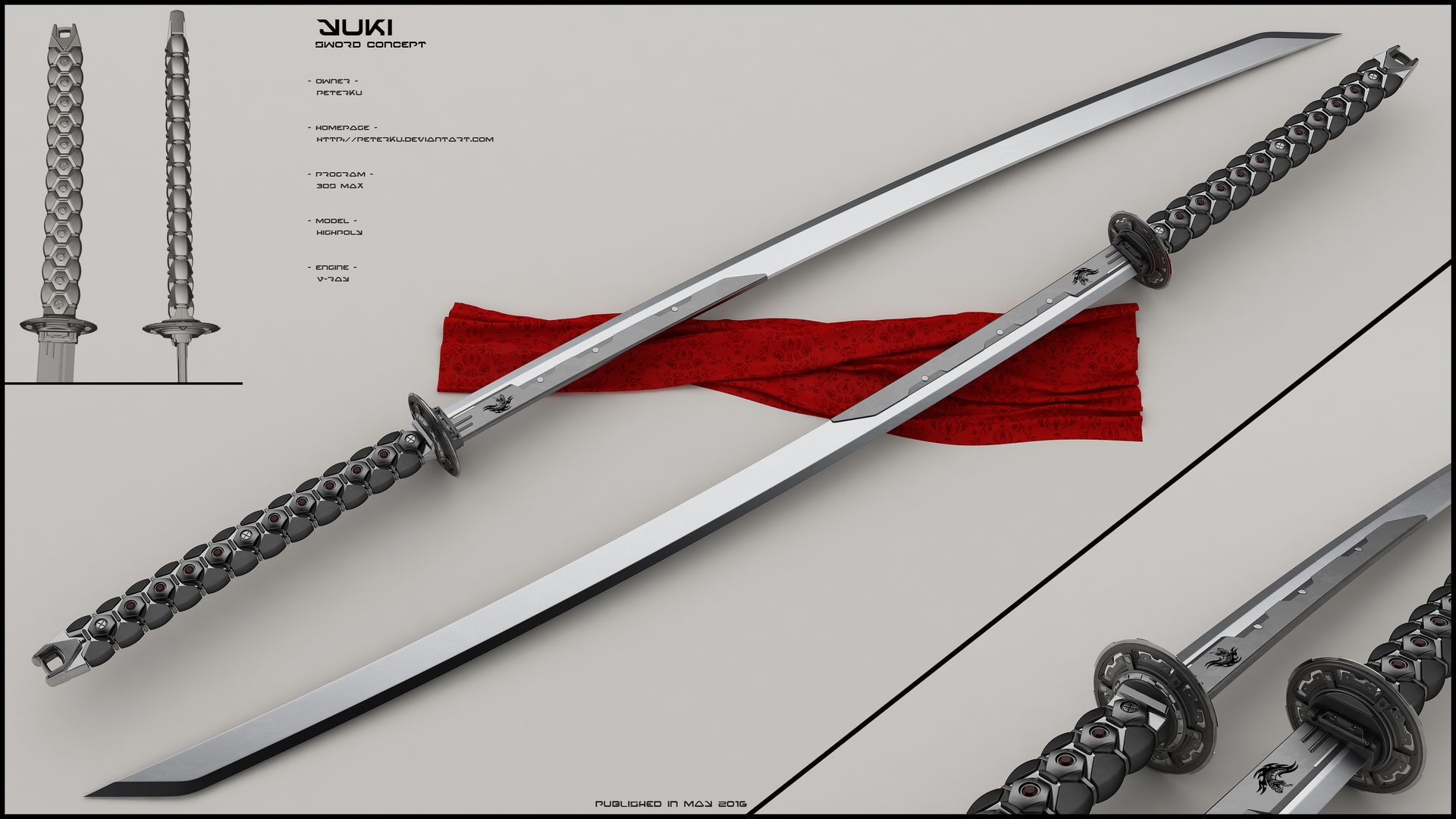
Fallen Ascension Form:
(A/N: She has 6x black Angel Wings.)
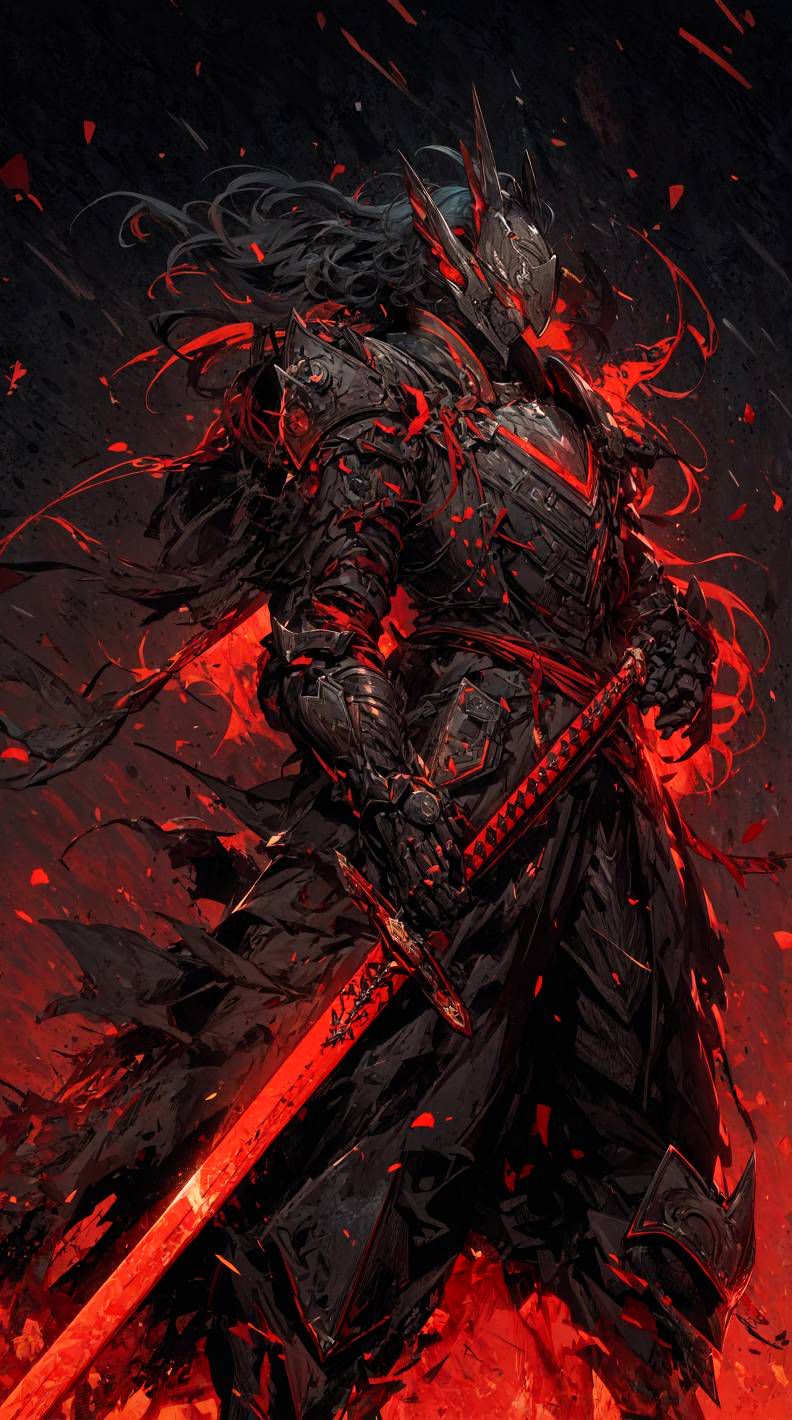
Ascension Form:
(A/N: She has 6x white Angel Wings.)
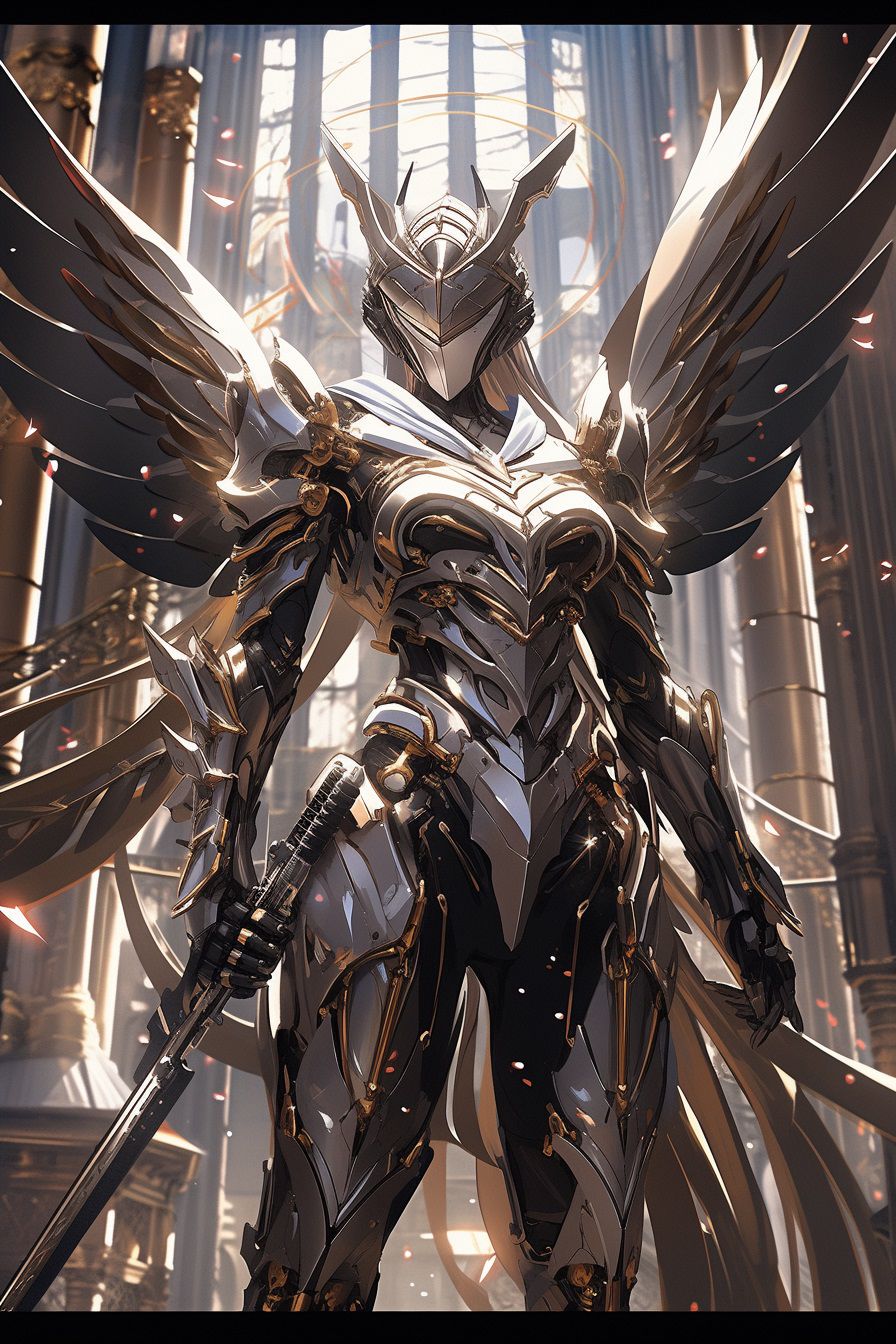
========== (00) ========== (00) ==========
Name: Adolf von Hohenzollern
Real Name: August Adolf Alexandrine Annabelle
Looks:
(Child)
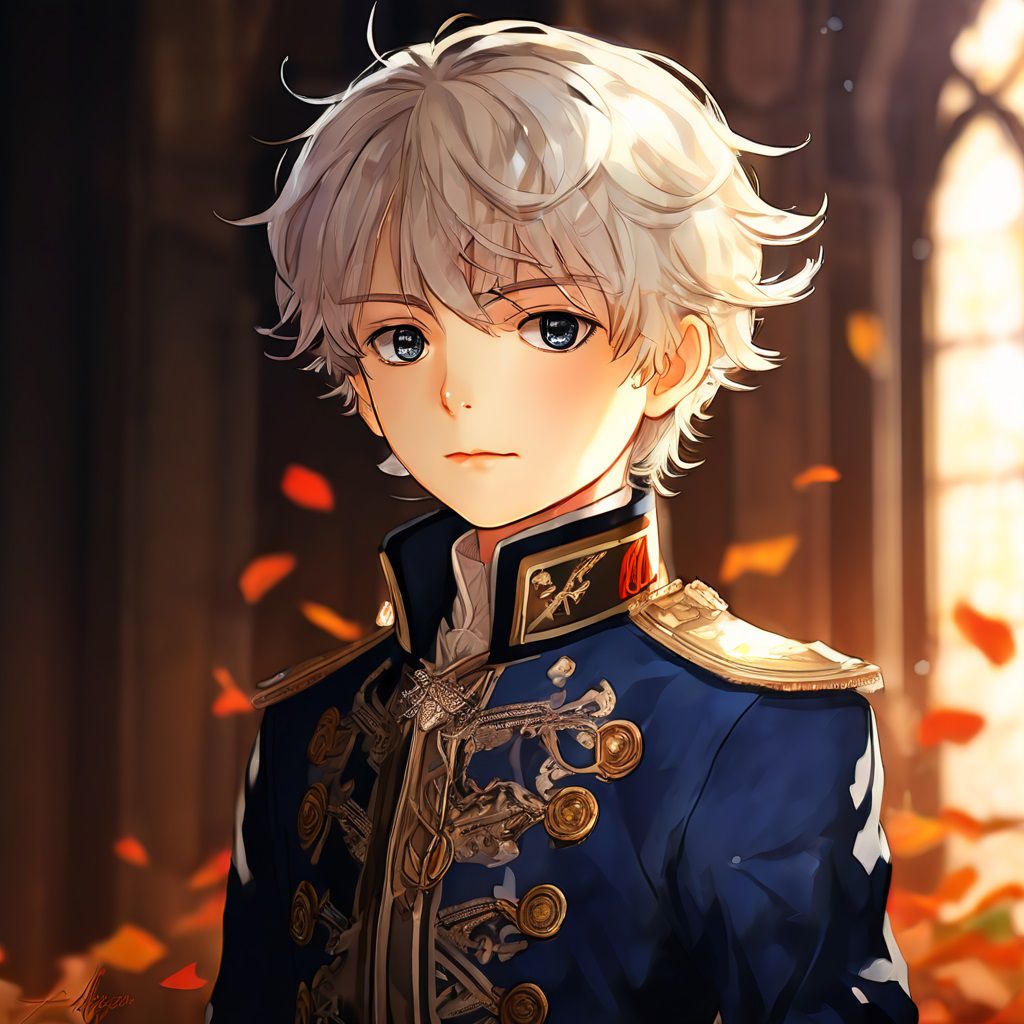
(Teenager)
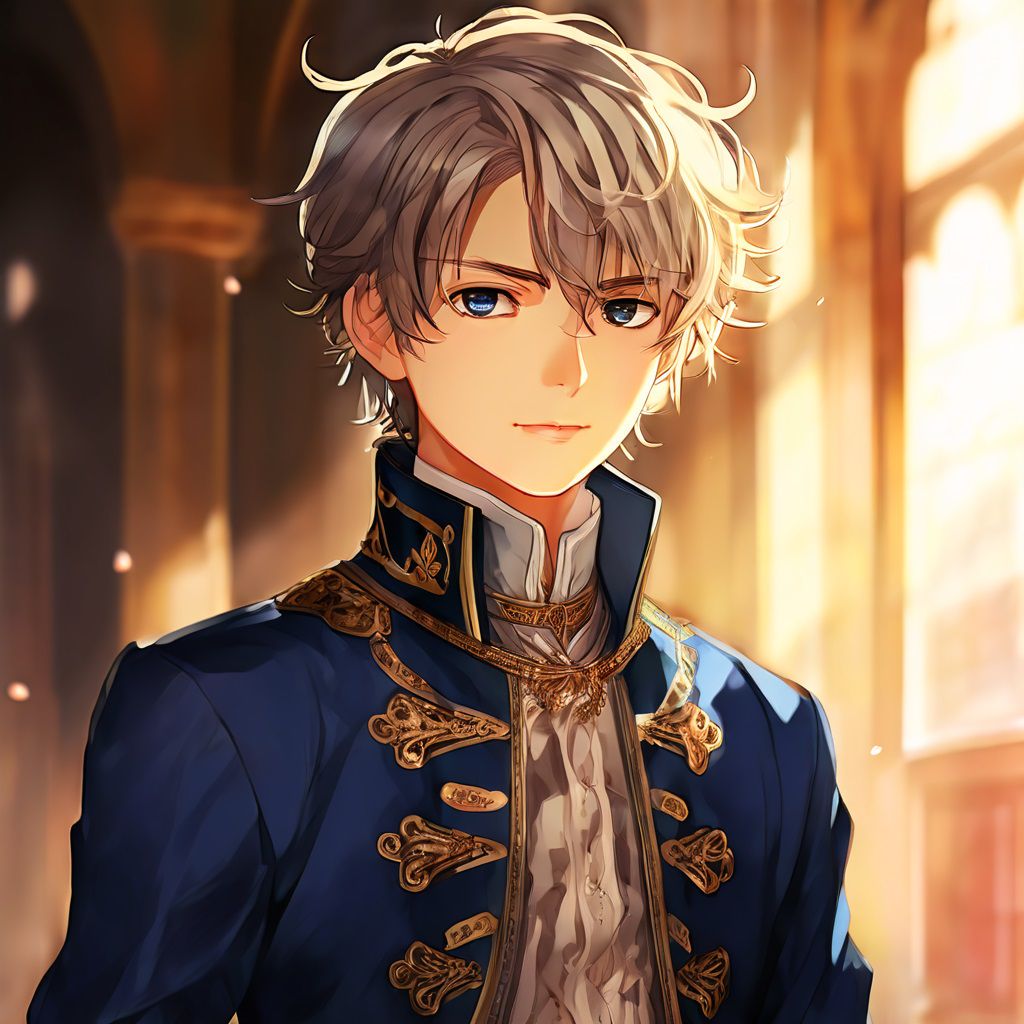
(Adult)
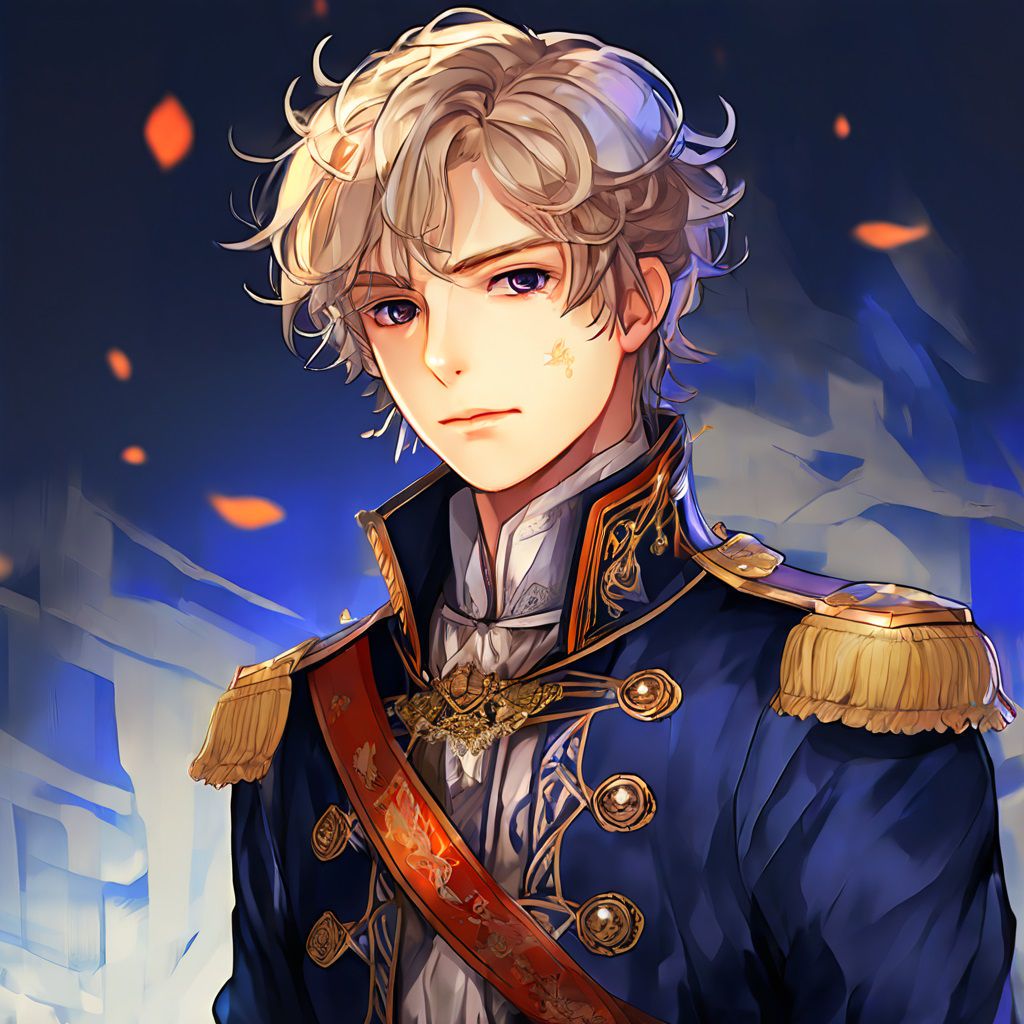
Species:
Arch-Nephilim (Half-Human/Half-Archangel) (Formally)
Angel (Archangel) (Currently)
Nationality: German (German Empire)
Ethnicity: German (Prussian) - Slavic (Polish - Russian [Cossack and Siberian]) - Jewish
Home Country: Germany (German Empire)
Gender: Male
Date of Birth: March 30, 1956
Age:
Child = 7
Teenager = 18
Adult = 25
Eye Color: Blue
Hair Color: Plantinum Blonde
Famous Quotes:
-"The blood of Hohenzollerns flows through my veins, and with it comes a sacred trust to serve my people and my nation with unwavering conviction."
-"I do not seek victory through brute force, but through the mastery of strategy and the relentless pursuit of advantage. The battlefield is a chess match, and I am the grandmaster."
"In the solitude of my studio, I find a respite from the burdens of my station. My brush becomes a vessel for the turbulent emotions that rage within, allowing me to give form to the visions that haunt my dreams."
-"Sometimes, the path to victory requires that one's hands become stained with the grime of compromise. I do not take such decisions lightly, but I will do what is necessary to secure the future of my family and my nation."
-"When I stand before my men, I see not mere soldiers, but kindred spirits who will follow me into the jaws of death. It is a responsibility I wear with pride, for to lead is to inspire, and to inspire is to conquer."
-"The criminal mind is a fascinating thing, is it not? A web of deception, carefully woven to ensnare the unwary. But I assure you, I am no common fly."
-"You think this is a game, don't you? Well, let me assure you, my friend, I don't play by the same rules as the rest of the world. When I make a move, it's checkmate."
Playful Quotes:
-"Dude, check it - I'm Prince August Adolf Alexandrine Annabelle, and this is my most excellent half-bro, Prince Wilhelm Heinrich Günther Gustav. We're here to party like it's 1980s!"
-"Whoa, Wilhelm, did you see that totally bodacious painting I just did? I call it 'The Triumph of the Hohenzollerns' – it's like, so bogus and amazing, don't you think?"
-"This history stuff can be a real bummer, but you know what's not bogus? The killer guitar solo I've been working on! Check it out, bro!"
-"Wilhelm, my man, we need to come up with an excellent plan to convince uncle Fred (Friedrich IV) that our radical new idea for an 'electric motor-carriage' is totally worth investing in. It's gonna be so awesome, the people will be like, 'Whoa!'"
-"Dude, your latest thesis on Prussian military strategy is off the chain, but you know what would make it even better? If we added a killer soundtrack and some sweet special effects. Then it would be truly most triumphant!"
Playboy Quotes:
-"Have you met my good friend, the Prince of Hohenzollern? I must warn you, he's quite the charmer – and he has the bank account to match."
-"They say the Prussian nobility are a dour, humorless lot. Clearly, they've never met me."
-"Duty and honor? Certainly, my dear. But a prince must also know how to have a little fun. Care to join me for a nightcap?"
-"They say money can't buy happiness, but I've never had any trouble finding joy in the finer things in life."
-"You know, they say the key to a good time is a fast car and a faster woman. Fortunately, I happen to have both in spades."
-"Genius, billionaire, playboy, philanthropist – those are just a few of the hats I wear. But my favorite? The one that says 'Prince' on it."
Parents:
Falken Gustav (Father)
Maria Annabelle (Mother)
Armina von Hohenzollern (Half-Mother)
Background: Born in the year 1956 in Berlin, German Empire, just 2 years after the 'Final Conflict', Adolf von Hohenzollern is once an Arch-Nephilim and now an Archangel. He is the younger son of Armina von Hohenzollern – the Princess of the Deutsches Kaiserreich, a former Nephilim and now an Archangel – Falken Gustav – a Field Marshal and a Prince who is Armina's husband – and Maria Annabelle – a German-Slavic-Jewish Field Marshal and a Princess who is also Falken and Armina's wife. He is the younger half-brother to Wilhelm von Hohenzollern, and the grandson of Osman and Viktoria. He is also Neo Angelo's nephew and Soren Angelo's cousin. Additionally, Adolf is Sophiel and Alexandrael's nephew, and Charlotte and Leopold's cousin – who are the twin children of Friedrich IV and Wilhelmina Strasse.
From a young age, it was evident that Prince Adolf was no ordinary scion of the House of Hohenzollern. As the great-grandson of the formidable Kaiser Wilhelm II and Kaiserin Augusta Viktoria, he was groomed for greatness from the moment he took his first steps.
The young prince's days were a whirlwind of rigorous military training, art lessons, and relentless academic studies – a reflection of the dual legacies he was expected to uphold. Under the tutelage of seasoned Prussian officers, Adolf honed his strategic acumen, mastering the art of warfare and command with a zeal that belied his tender years. Yet, in the grand salons of the imperial court, he would just as easily captivate audiences with his burgeoning artistic talents, sketching elaborate portraits and landscapes that showcased his keen eye for detail and innate creative flair.
Despite the weight of his royal lineage, Adolf's upbringing was not without its moments of warmth and affection. His doting aunts, Princesses Alexandrine and Cecilie, would often whisk him away from the rigors of his studies, introducing him to the vibrant world of art and culture that existed beyond the confines of the palace. It was in these moments, surrounded by the canvases and brushstrokes of his creative idols, that Adolf truly felt alive, his analytical mind momentarily freed from the constraints of his princely duties.
Yet, the shadow of his great-grandfather, the mercurial Kaiser Wilhelm II, loomed large over Adolf's formative years. The young prince could not help but be influenced by the older man's grandiose ambitions and unapologetic sense of entitlement, qualities that would ultimately shape his own burgeoning personality. As he grew older, Adolf would come to emulate his great-grandfather's uncompromising determination and skill in the political arena, honing his own brand of Machiavellian cunning to navigate the treacherous waters of the imperial court.
As Prince Adolf navigated the rigors of his princely upbringing, he found a kindred spirit in the form of his older half-brother, Wilhelm. Unlike the young Adolf, who exhibited a precocious intellect and a burning ambition from a young age, Wilhelm shared many of the same traits – a mischievously sharp mind, a penchant for strategy, and an insatiable curiosity.
Where the two brothers truly bonded, however, was in their mutual fascination with the legendary detective, Sherlock Holmes. While Adolf admired the character's legendary deductive prowess, it was Wilhelm who truly embodied the Sherlockian spirit, immersing himself in the stories and meticulously studying the methods of the famous sleuth. This shared passion for the world of Baker Street often led the brothers to engage in spirited debates, dissecting the intricacies of Sherlock's crime-solving techniques and playfully arguing over who possessed the greater powers of observation and deduction, much like their father, Falken Gustav, and their fictional idol, Sherlock Holmes.
Together, Adolf and Wilhelm formed a dynamic duo, their brotherly bond reminiscent of the legendary friendship between Bill and Ted. They would often engage in spirited debates, dissecting the intricacies of Sherlock's crime-solving techniques and playfully arguing over who possessed the greater powers of observation and deduction.
But the brothers' shared interests extended beyond their Sherlockian obsession. Wilhelm also harbored a deep passion for music, spending countless hours composing and playing the guitar, while Adolf, in turn, found solace in the world of painting, his canvases reflecting the same meticulous attention to detail that characterized his military and academic pursuits.
In the grand halls of the Hohenzollern palace, this dynamic blend of intellectual, artistic, and Sherlockian camaraderie, interests often clashed with the more aloof, intellectual, and scholarly dispositions of their cousins, Charlotte and Leopold. The latter pair, while undoubtedly brilliant in their own right, viewed the brothers' antics with a mixture of bemusement and mild irritation, unable to fully understand the depth of their shared passion.
While Adolf and Wilhelm reveled in their Sherlockian adventures, engaging in spirited debates and playful competitions to showcase their deductive prowess, the elder pair, Charlotte and Leopold, preferred to spend their time immersed in more scholarly pursuits. The cousins would often be found sequestered in the palace library, poring over tomes on history, philosophy, and the sciences, their brows furrowed in deep concentration.
Whenever the four cousins gathered for family functions, the differences in their personalities and interests became increasingly apparent. Adolf and Wilhelm would breeze into the room, their infectious laughter and energetic antics immediately disrupting the more sedate atmosphere favored by Charlotte and Leopold.
The elder cousins, in turn, would regard the younger pair with a mixture of bemusement and mild exasperation, unable to fathom how anyone could devote so much time and energy to the exploits of a fictional detective. They would often attempt to steer the conversation towards more "intellectually stimulating" topics, only to be met with good-natured teasing and counter-arguments from the Sherlockian brothers.
Despite these clashes of temperament, there was an undercurrent of genuine affection and respect that bound the four cousins together. Charlotte and Leopold, while at times frustrated by the antics of Adolf and Wilhelm, would secretly admire the brothers' boundless enthusiasm and creativity. Conversely, the younger pair, for all their playfulness, recognized the formidable intellects of their elder cousins, and would occasionally seek their counsel on matters of strategy and statecraft.
This friendly rivalry between the two sets of royals provided endless entertainment for the palace staff, who would often find themselves caught in the crossfire of good-natured pranks, quizzes, playful challenges, and impromptu musical or artistic performances. Yet, beneath the surface, there was a mutual respect and admiration that bound the four cousins together, a testament to the enduring strength of their familial ties.
During those times, Kuro created the alter egos of Wilhelm and Adolf to assist them in the future, in which Wilhelm named his alter ego Reisei, and Adolf named his alter ego Akira.
Even at a young age, Prince Adolf's prodigious talents were recognized and celebrated within the halls of the imperial court. It came as little surprise, then, when he was enrolled in the prestigious Kriegsakademie – the elite military academy that had produced some of the most celebrated strategists and commanders in Prussian history.
Amidst the regimented discipline and unyielding rigor of the Kriegsakademie, Adolf thrived. The training regimen was brutal, pushing cadets to their physical and mental limits through relentless drills, grueling marches, and unforgiving combat exercises. Yet, rather than shrinking from the challenge, Adolf embraced it with a fervor that stunned his instructors.
His keen intellect and innate aptitude for military science quickly distinguished him from his peers, and he soon found himself the protégé of seasoned officers steeped in the legacy of figures like Friedrich the Great and Carl von Clausewitz. Under their tutelage, the young prince honed his already formidable tactical skills, devising innovative battle plans and maneuvers that left his instructors in awe.
The Kriegsakademie was a crucible that forged the most elite of Prussian warriors, and Adolf proved himself more than equal to the task. He excelled in every facet of his training, from the precision of his marksmanship to the ruthless efficiency of his hand-to-hand combat techniques. Even as his fellow cadets succumbed to the punishing demands of their studies, Adolf remained steadfast, his determination fueled by a deep-seated ambition that bordered on the obsessive.
Yet, even as he honed his martial prowess, Adolf never lost sight of his artistic passions. In the rare moments of respite, he would retreat to his quarters, brush and palette in hand, losing himself in the vibrant, emotive strokes that mirrored the tumultuous workings of his own mind. It was in these private moments of creative expression that the young prince found a measure of solace, a means of reconciling the competing facets of his identity – the disciplined soldier and the inspired artist, the calculating strategist and the passionate visionary. His interests extended beyond the purely martial realm; he would often steal away from his martial drills to sketch the intricate mechanisms of the academy's artillery pieces or the chiseled features of his fellow cadets.
This fusion of martial prowess and artistic sensibility only served to heighten the aura of mystique that surrounded the young Hohenzollern prince. His fellow students, many of them the scions of noble families themselves, found themselves drawn to Adolf's charismatic presence, captivated by his effortless command of both the battlefield and the drawing room.
It was during these formative years that Adolf's ruthless ambition and political acumen truly began to crystallize. Observing the complex web of alliances and rivalries that permeated the imperial court, he learned to navigate the treacherous waters of Prussian politics with a deftness that belied his youth. Like Otto von Bismarck, Adolf demonstrated a preternatural talent for strategy and manipulation, using his charm, intellect, and sheer force of will to position himself for future success.
Yet, even as he excelled in the rigors of military training and the machinations of court politics, Adolf never lost sight of his artistic passions. In the rare moments of respite, he would retreat to his quarters, brush and palette in hand, losing himself in the vibrant, emotive strokes that mirrored the tumultuous workings of his own mind.
Throughout his rigorous training, Adolf found an unlikely ally in his older half-brother, Prince Wilhelm. Where Adolf excelled in the martial arts, Wilhelm's talents lay in the realm of academia and the arts. The two princes formed a bond akin to the legendary friendship of Bill and Ted, their camaraderie a source of constant bemusement and, at times, exasperation for their more stoic and intellectual cousins, Princes Leopold and Charlotte.
Where Adolf and Wilhelm thrived on the physical challenges of their martial training, reveling in the thrill of combat drills and strategic maneuvers, their cousins Charlotte and Leopold excelled in the more cerebral aspects of the curriculum. Charlotte, with her razor-sharp intellect and meticulous attention to detail, quickly became the envy of her fellow cadets, consistently outperforming them in the academy's rigorous academic tests. Leopold, on the other hand, distinguished himself as a master of military theory, his deep understanding of the writings of Clausewitz and Sun Tzu guiding his every decision on the simulated battlefield. The two siblings formed a formidable partnership, their complementary strengths a source of endless frustration for the more physically-inclined Adolf and Wilhelm.
Yet, despite the clear divide in their academic and martial prowess, the four cousins shared a deep-rooted bond forged in the camaraderie of their youth. In the rare moments of respite from the Kriegsakademie's punishing regimen, they would gather in the academy's common room, their banter and laughter echoing through the hallowed halls.
While Adolf indulged in his passion for painting, Wilhelm immersed himself in the world of Sherlock Holmes, becoming a self-proclaimed Sherlockian of the highest order. Together, the two brothers would engage in spirited discussions about the detective's latest exploits, their enthusiasm often devolving into a whirlwind of silliness and nonsense that left their more serious-minded relatives shaking their heads in dismay.
It was during these reprieves that the true nature of their relationship became most apparent. Adolf and Wilhelm, with their boundless energy and mischievous streak, would often engage in a series of good-natured hijinks that left their more serious-minded cousins exasperated. Whether it was staging impromptu sword fights with the academy's ceremonial sabers or staging mock Sherlock Holmes-inspired investigations, the two brothers reveled in their ability to disrupt the studious calm that Charlotte and Leopold so cherished.
In turn, the intellectual cousins would retaliate with a barrage of witty quips and calculated maneuvers, their strategic minds devising ever more elaborate schemes to counter the brothers' antics. Charlotte, in particular, took great delight in outsmarting Adolf and Wilhelm, her razor-sharp logic and deadpan delivery often reducing the two princes to sputtering, good-natured frustration.
Yet, beneath the surface of their friendly rivalry lay a deep respect and admiration. The four cousins recognized the unique strengths that each of them brought to the table, and they were not afraid to put aside their differences to support one another when the demands of their training threatened to overwhelm them. For all their playful antics, Adolf and Wilhelm shared a deep respect and admiration for one another. When the rigors of their studies threatened to overwhelm them, they would turn to each other for support, their brotherly bond serving as a powerful counterweight to the unforgiving demands of their royal lineage.
As Prince Adolf's teenage years unfolded, the Kriegsakademie's training regimen became even more pronounced in its brutality, harshness, and deadliness. The academy's instructors, hardened veterans of countless wars and campaigns, pushed their students to the very edge of their physical and mental endurance, demanding unwavering obedience and absolute mastery of the art of warfare.
The drills became more frequent, more intense, and more dangerous. Adolf, now a young man, found himself facing mock battles that simulated the horrors of real warfare, with live ammunition and simulated casualties. He learned to navigate the chaos of battle, to make split-second decisions under pressure, and to lead his fellow cadets with a steely resolve that belied his youthful appearance.
The academy's instructors, recognizing Adolf's exceptional talent, pushed him further than any other student. They subjected him to grueling marches through the unforgiving Prussian countryside, forcing him to endure sleep deprivation, hunger, and relentless physical exertion. They pitted him against the academy's most formidable students in hand-to-hand combat, testing his strength, agility, and resilience.
Yet, through it all, Adolf persevered. He refused to yield to the pain, the exhaustion, or the fear that threatened to consume his fellow cadets. He embraced the brutality of the training regimen, seeing it as a crucible that would forge him into the warrior he was destined to be.
His artistic passions, once a source of solace, now became a means of coping with the relentless pressures of his military training. In the stolen moments between drills and exercises, Adolf would sketch the grim faces of his fellow cadets, the stark landscapes of the Prussian countryside, and the intricate mechanisms of the academy's weaponry. His art, once a reflection of his inner world, now became a testament to the brutal reality of his existence.
Through it all, Adolf had a constant source of support and camaraderie in his older half-brother, Wilhelm. Though separated by a few months, the two princes shared an unbreakable bond, forged in a shared love of adventure, mischief, and the pursuit of knowledge. Their personalities were a fascinating blend of contrasting yet complementary traits. Their relationship was a study in contrasts, a blend of intellectual brilliance and playful absurdity that often left their more stoic cousins, Charlotte and Leopold, shaking their heads in exasperation.
Wilhelm, a brilliant mind with a Sherlockian flair, was Adolf's equal in intellect, though his passions leaned towards music and the intricate world of deduction, toward the analytical and deductive. They were both fans of Sherlock Holmes, but Wilhelm was the true Sherlockian, possessing an uncanny ability to unravel complex puzzles and decipher hidden clues. He was the master of observation, the architect of intricate plans, and the champion of logical reasoning. He was a Sherlockian, a devotee of the legendary detective, with an insatiable thirst for knowledge and a knack for solving puzzles and mysteries.
Adolf, on the other hand, was a master of strategy, a natural leader, and a gifted artist that excelled in the physical and strategic demands of the Kriegsakademie. He possessed a keen eye for detail, a talent for inspiring others, and a boundless capacity for creative thinking. Together, they were an unstoppable force, their contrasting strengths complementing each other perfectly.
Their relationship, much like that of Bill and Ted, was a chaotic blend of silliness, absurdity, and genuine affection. They were inseparable, embarking on grand adventures, engaging in playful banter, and often finding themselves in situations that were both hilarious and utterly ridiculous. They would often engage in outlandish schemes and pranks, much to the annoyance of their stoic and intellectual cousins, Charlotte and Leopold. These schemes often involved elaborate plans, daring escapades, and a healthy dose of nonsensical humor.
This friendly rivalry between the two pairs only served to heighten the sense of camaraderie and competition that permeated their lives. Charlotte and Leopold, while often exasperated by their cousins' antics, couldn't help but admire their boundless energy, their unwavering optimism, and their unwavering belief in the power of friendship.
Despite their shared love of mischief, Adolf and Wilhelm were also deeply committed to their own individual passions. Adolf, with his artistic flair and penchant for the dramatic, found himself drawn to the world of painting, his canvases bursting with vibrant colors and emotive strokes. Wilhelm, on the other hand, poured his creative energy into the world of music, composing intricate symphonies and sonatas that showcased his intellectual depth and emotional range.
As they navigated the complexities of their teenage years, Adolf and Wilhelm developed a playboy attitude and persona, influenced by the charismatic figures of Bruce Wayne, Oliver Queen, and Tony Stark. They embraced the world of high society, indulging in lavish parties, extravagant adventures, and romantic escapades.
Yet, beneath this facade of carefree indulgence, both princes harbored a deep sense of responsibility and a commitment to justice. When the world demanded it, they shed their playboy personas and embraced their inner heroes. Adolf, with his unwavering determination and tactical prowess, adopted the Green Arrow persona, wielding his skills as a warrior to protect the innocent and fight for what was right. Wilhelm, with his sharp intellect and deductive reasoning, transformed into the Batman, a vigilante who used his knowledge and cunning to unravel conspiracies and bring criminals to justice.
Their shared passion for their respective heroes, their playful rivalry with their cousins, and their unwavering commitment to justice formed the bedrock of their relationship. As they matured, Adolf and Wilhelm would continue to navigate the complexities of their lives, their bond strengthened by their shared experiences and their unwavering support for one another.
After all, the Kriegsakademie was a crucible, a place where the best and brightest of Prussian youth were forged into warriors. Its unforgiving training regimen was also a crucible that tested not only the physical and mental fortitude of its students but also the bonds of their relationships. But it was also a place where the contrasting personalities of the four cousins were thrown into sharp relief. For Prince Adolf and his half-brother Wilhelm, it served as a backdrop for their playful rivalry with their cousins, Charlotte and Leopold, a contrast of personalities that played out amidst the harsh realities of military life.
Charlotte, the eldest of the four, was a prodigy of intellect and discipline, a brilliant strategist with a sharp wit and an unwavering sense of duty. She excelled in the academy's rigorous curriculum, her cold, aloof demeanor masking a fierce determination. Leopold, her younger twin brother, was her equal in intellect and ambition, his desire to prove himself worthy of his noble lineage fueling his drive.
Yet, their approach to the academy's brutal training regimen differed starkly from that of their cousins, Adolf and Wilhelm. Charlotte and Leopold, with their stoic demeanor and unwavering focus on discipline, viewed the academy as a proving ground, a place where they could hone their skills and prepare themselves for the responsibilities that awaited them as future leaders of the German Empire.
However, their contrasting personalities clashed with the carefree, often reckless, nature of Adolf and Wilhelm. While Charlotte and Leopold approached their training with a calculated precision, Adolf and Wilhelm often found themselves caught up in their own elaborate schemes and pranks, their playboy personas a stark contrast to the stoic seriousness of their cousins. Adolf and Wilhelm approached the academy with a blend of enthusiasm and mischief. They embraced the challenges, relishing the camaraderie and the thrill of pushing their limits. Their antics, often bordering on the absurd, were a source of both amusement and exasperation for their more serious cousins.
During grueling marches through the Russian terrains – both UN Russia and the Russian Empire – Charlotte and Leopold would maintain a steady pace, their movements precise and efficient, focused on their objective and ignoring the playful banter of their cousins. Adolf and Wilhelm, on the other hand, would often break into song, their voices echoing through the Russian terrains, much to the annoyance of their stoic siblings. This disparity in approach would often lead to playful arguments and good-natured ribbing, with Charlotte and Leopold chiding their cousins for their lack of discipline and focus.
In the mock battles that simulated the horrors of real warfare, Charlotte and Leopold would strategize with meticulous detail, their battle plans a testament to their analytical minds. They were meticulously crafted and flawlessly executed. Adolf and Wilhelm, meanwhile, would often find themselves improvising, their tactics fueled by a mix of intuition and sheer luck in the thick of the action. It was a blend of calculated risk and inspired improvisation. Their playful rivalry would often spill over into these exercises, with Adolf and Wilhelm attempting to outwit their cousins with elaborate ruses and daring maneuvers.
This friendly rivalry, born from their contrasting personalities, only served to strengthen their bond. Charlotte and Leopold, though often exasperated by their cousins' antics, couldn't help but admire their boundless energy, their unwavering optimism, and their unwavering belief in the power of friendship. Despite their contrasting personalities, the four cousins shared a deep respect and affection for one another. They understood that their differences were what made them stronger, and that their playful rivalry only served to deepen their bond.
During moments of respite, they would gather in the academy's library or courtyard, sharing stories, discussing their dreams, and debating the intricacies of military strategy. It was in these moments of shared intimacy that the four cousins truly understood the depth of their connection, a bond forged in the crucible of the Kriegsakademie.
One memorable incident occurred during a particularly grueling training exercise, a simulated siege of a fortified town. Charlotte and Leopold, with their meticulous planning and strategic acumen, had devised a plan that would allow them to capture the town with minimal casualties. Adolf and Wilhelm, however, had a different idea.
They decided to infiltrate the town's defenses by disguising themselves as merchants, using their charm and quick wit to gain access to the enemy's inner sanctum. Their plan was audacious, bordering on the reckless, but it was also undeniably brilliant.
As the siege unfolded, Charlotte and Leopold watched in disbelief as their cousins, with their mischievous grins and their unwavering confidence, successfully infiltrated the enemy's lines. They managed to capture the town's commander, turning the tide of the battle in their favor.
In the end, both sides emerged victorious, their contrasting approaches proving equally effective. It was a testament to their unique talents and their unwavering bond, a reminder that even in the most challenging of circumstances, their differences could be a source of strength.
The Kriegsakademie, with its brutal training regimen and its unforgiving demands, forged a unique bond between the four cousins. It tested their limits, challenged their beliefs, and ultimately brought them closer together. And as they emerged from the academy's crucible, they were ready to face the world, their contrasting personalities and their unwavering bond guiding them towards a future filled with both challenges and opportunities.
By the age of 16, Adolf had endured the full brunt of the Kriegsakademie's brutal training regimen. He had survived the grueling marches, the mock battles, and the relentless physical and mental challenges that had broken many of his peers. He had emerged from the academy's crucible a changed man, a seasoned warrior with a steely resolve and a keen understanding of the art of war.
Upon graduating from the Kriegsakademie, Prince Adolf embarked on a new chapter in his life, one that would see him trade the battlefield for the hallowed halls of the Academy of Fine Arts Vienna. This unexpected turn of events was a testament to the complex and multifaceted nature of the young Hohenzollern prince, a man who balanced the discipline of a warrior with the passion of an artist.
His time at the Kriegsakademie, though brutal and demanding, had also been a period of transformation. The relentless training regimen, the camaraderie forged in the face of adversity, and the relentless pursuit of excellence had instilled in him a sense of self-assurance and a certain swagger that would become synonymous with his playboy persona.
Adolf had become a charmer, a captivating figure who could effortlessly navigate the social circles of the Prussian aristocracy. He possessed a natural charisma that drew people to him, a combination of wit, intelligence, and a certain devil-may-care attitude that made him irresistible to both men and women.
His time at the Kriegsakademie had also exposed him to a world beyond the strict confines of military discipline. He had developed a taste for the finer things in life, indulging in the pleasures of fine wine, extravagant dinners, and the company of beautiful women. This newfound appreciation for the finer things in life would only be amplified during his time at the Vienna Art School.
The Academy of Fine Arts Vienna, renowned for its progressive and avant-garde approach to art, offered Adolf a stark contrast to the rigid discipline of the Kriegsakademie. Here, he was free to explore his artistic passions without the constraints of military training. He immersed himself in the world of art, studying the works of masters like Klimt, Schiele, and Kokoschka, and developing his own unique style that blended the realism of his Prussian heritage with the bold expressionism of the Viennese art scene.
As Prince Adolf delved deeper into the world of art at the Vienna Art School, his artistic talents blossomed, revealing a unique and captivating style that drew comparisons to the legendary Vincent van Gogh. The professors and teachers, recognizing the depth of his talent and the intensity of his artistic vision, began to refer to him as the "next Vincent van Gogh," right after Adolf Hitler who was renowned as the "Vincent van Gogh of the 20th century."
Adolf's paintings, like those of his artistic idol, were characterized by bold brushstrokes, vibrant colors, and a raw emotional intensity that resonated deeply with viewers. He captured the beauty and the chaos of the world around him, from the bustling streets of Vienna to the serene landscapes of the Austrian countryside, with a passion and a fervor that was both captivating and unsettling.
His paintings often explored themes of human emotion, societal upheaval, and the search for meaning in a world that seemed increasingly chaotic. He painted portraits of individuals who seemed to be on the verge of breaking down, their faces contorted with a mixture of pain, longing, and despair. He painted landscapes that were both beautiful and unsettling, reflecting the internal turmoil that he carried within him.
Like Van Gogh, Adolf was a tortured artist, a man who poured his soul onto the canvas, seeking to express the raw emotions that he could not articulate with words. He was driven by an insatiable desire to create art that would move people, that would challenge their perceptions of the world, and that would leave a lasting impact on the human spirit.
His professors, recognizing his artistic genius and his unwavering commitment to his craft, encouraged him to push the boundaries of his art, to explore new techniques and to challenge the conventions of the art world. They saw in him a potential to become a truly great artist, a visionary who could reshape the landscape of art for generations to come.
Yet, even as he embraced the artistic freedom of Vienna, Adolf never truly abandoned his military roots. He still possessed a deep-seated respect for the Prussian tradition of discipline and excellence, and he carried with him the lessons he had learned at the Kriegsakademie. This duality, the warrior and the artist, the disciplined soldier and the passionate visionary, continued to define him, shaping his personality and his approach to life.
His time at the Vienna Art School was a period of both artistic exploration and personal growth. He embraced the city's vibrant cultural scene, indulging in its intellectual salons, its grand operas, and its lively nightlife. He honed his skills as a charmer, a playboy who could effortlessly navigate the city's social circles, captivating audiences with his wit, his charm, and his undeniable charisma.
It was during this period that Adolf fully embraced his playboy persona, becoming a figure of both fascination and controversy. He was known for his extravagant parties and his willingness to push the boundaries of convention. Yet, beneath the surface of his hedonistic lifestyle, Adolf remained a man of ambition and vision, a Hohenzollern prince who was determined to leave his mark on the world, both as a warrior and as an artist.
At the age of 18, Adolf was forced to postpone his studies at the Academy of Fine Arts Vienna when his family, especially his grandparents, father, and aunt, had him enlisted in the Vanguard Squad after his cousin, Soren, and his friends graduated from their academies. Originally, the Vanguard Squad consisted of eight members: Soren Angelo, Tanya von Gregor, Moroha Li Shen, Sophiel von Hohenzollern, Charlotte von Hohenzollern, Leopold von Hohenzollern, Wilhelm von Hohenzollern, and finally, himself, Adolf von Hohenzollern. The Vanguard Squad slowly and surely grew from a bunch of mismatched misfits to become one of the most combat-effective squads in the United Nations during 1974–1979 in the Kaiserreich universe, which in the UN universe is 2050–2055.
In five years, the Vanguard Squad had been responsible for dealing with lingering threats, along with the resurgent group of the Illuminati. During those five years, Adolf and his team had many great adventures, in his and his brother's terms. The one that excited them most was when they became uncles to Leopold's adopted daughter, Ymir. While they loved and cared for her dearly, Adolf and Wilhelm had to make sure they kept their playboy attitude in check when they were around her. Not just because they cared about her but also because they knew full well how wrathful Leo would be against them if they ever messed around with his daughter.
At ages 21 to 23, Charlotte, Leopold, Alexandrael, Wilhelm, and Adolf had to leave the team to continue and complete their studies. In his spare time, Adolf would usually visit his childhood friend and cousin, Crown Princess Lyudmila Nikolaevna Romanova of the Russian Empire. Though, she always preferred to call herself Sherlotta Holmesovna since she is a true Sherlockian like his brother, Wilhelm, and his father, Falken. Every time he visited, they would embark on adventures of crime solving and puzzles, quizzes deciphering, hence, it wasn't surprising when Sherlotta became the youngest detective, investigator, and field agent of the United Nations Bureau of Intelligence (UNBI) and Order of the Silver Cross at the age of 15. Additionally, they both had romantic crushes on each other when they were kids, but didn't find the right time to confess their feelings.
Other than that, he was also assigned by his grandfathers, Osman and Kuro, to assist with the PTSD recovery of Hikari Shimizu, a Japanese demigod who was the daughter of Susanoo. During the recovery, Hikari developed a romantic crush on Adolf given how kind and honest he is. Despite his playboy attitude, the Japanese Demigod found him to be attractive due to his kindness and honesty. It was on her birthday that Adolf had won and captured her heart.
At the age of 22, Adolf found himself in a love triangle between Sherlotta and Hikari when they both confessed their romantic feelings to him on the same night. Before Adolf could ask as he tried to process the sudden confession, the two girls admitted that they both had romantic feelings for him, and when they found out that they had it, the Russian Crown Princess and Japanese Demigod both agreed to share Adolf as their husband. Seeing this kinda reminds him of Moroha and Tanya having a crush on Soren, however, this time is very different since unlike Soren, Adolf told them to speak with their parents to see if they could agree with this love triangle/double dates. After talking, the parents agreed to have Adolf, Sherlotta, and Hikari dating each other, in which three years later after much courting and dating, the three acknowledged their romantic affection and feelings for each other, leading them to happily marry when Adolf and Sherlotta were 25, and Hikari was 133, becoming a family as they declared unity through marriage.
After Adolf graduated from the Academy of Fine Arts Vienna, he rejoined the Vanguard Squad, but Wilhelm refused to join back due to having reasons of his own, including the fact that he had to stay behind to govern the Empire and was engaged and married to the Princess of the Japanese Empire, Hanako Kaguya, while Adolf was away. Hearing this, Adolf felt sad and disappointed that his older half-brother wouldn't return to the team when he had proven himself to be an excellent and strong warrior like him, but he respected his brother's choice and decision when he felt that Wilhelm felt more at home, which led him to become the youngest Field Marshal at the age of 23. The same goes for his cousin, Leopold, when he also refused to rejoin the team for the same reason her brother had, as he would marry to the UN scientist that he had a romantic crush on her for a long time, Ellen Zoe, but he was somewhat glad, relieved, and happy to see Alexandrael and Charlotte rejoin the team after graduation.
In the present day, Adolf continues to fight for the UNDF, the ICC, and their allies against the forces of evil, doing everything possible to keep the peace that his parents and families had fought for, while continuing his role as the husband of Crown Princess Sherlotta Holmesovna and the Japanese demigod Hikari Shimizu.
Personality: As a scion of the House of Hohenzollern, Prince Adolf von Hohenzollern's personality is a complex amalgamation of his prestigious lineage. He cuts an imposing figure, his regal bearing and haughty countenance betraying the weight of his noble lineage. Raised in the shadow of his great-grandparents, the indomitable Kaiser Wilhelm II and the graceful Kaiserin Augusta Viktoria, Adolf has internalized the Prussian code of honor and duty that has long defined his family.
On the one hand, he has inherited the Prussian military bearing and strategic acumen of figures like Friedrich the Great and Carl von Clausewitz. Adolf is a natural commander, with an iron will and unwavering discipline that demands respect. Like the "Iron Chancellor" Otto von Bismarck, he is a shrewd political operator, capable of cunning maneuvers and hardball tactics to achieve his goals.
Yet, Adolf's personality is not merely a product of his illustrious heritage; it is a complex tapestry woven from the legacies of his ancestors, both military and artistic. From the strategic brilliance of figures like Friedrich the Great and the legendary Field Marshals Helmuth von Moltke, Erwin Rommel, and Georgy Zhukov, Adolf has honed an almost preternatural talent for battlefield tactics and political maneuvering. His mind operates with the ruthless pragmatism of Otto von Bismarck, ever ready to employ unorthodox means to achieve his ambitious ends.
But Adolf's persona is not solely defined by his martial prowess. Bearing the creative spirit of his aunts, Princesses Alexandrine and Cecilie, as well as the tortured genius of Vincent van Gogh, the young prince possesses a deep appreciation for the arts. He possesses a creative spark that sets him apart from his martial ancestors. Inspired by the tortured genius of Vincent van Gogh, he harbors a deep passion for the arts, constantly sketching and painting in his spare time. This artistic sensibility coupled with an insatiable intellectual curiosity gives him the air of a Renaissance man – part soldier, part visionary. In the solitude of his studio, Adolf finds solace in the act of painting and sketching, his brushstrokes a release valve for the tempestuous emotions that often roil within him.
Beneath his regal bearing and imposing presence, there burns a restless creative spirit inherited from his distant kinsman, the legendary painter Vincent van Gogh. Much like the Dutch master, Adolf finds solace and a release from the burdens of his station through the act of artistic expression.
In the solitude of his private studio, the young prince can be found meticulously sketching the landscapes that surround his family's estates, his charcoal strokes capturing the moody, atmospheric qualities that so defined Van Gogh's distinctive style. Vibrant hues and bold, expressive brushwork breathe life into his canvases, as Adolf seeks to channel the raw, emotional intensity that characterized the painter's own tumultuous inner world.
Yet, this creative impulse is not merely a leisurely pursuit for the prince; it is a compulsive need, a means of tempering the restless, mercurial temperament that he shares with his artistic forebear. Just as Van Gogh was driven to paint through periods of manic energy and deep, melancholic introspection, Adolf too finds himself beholden to these mercurial mood swings.
During these episodes, the prince will often sequester himself for hours on end, furiously committing his visions to paper or canvas, only emerging when the fever has broken. His staff has learned to tread carefully during these creative frenzies, lest they incur the wrath of the prince's famously short temper, a trait he has seemingly inherited from his temperamental great-grandmother, Kaiserin Augusta Viktoria.
But it is not merely in the act of painting and sketching that Adolf channels the spirit of Van Gogh. The prince's penchant for wearing brightly colored, unconventional clothing – a bold departure from the staid, conservative fashions of the Hohenzollern court – serves as a symbolic rejection of societal norms, much like the Dutch master's own sartorial eccentricities.
And like Van Gogh, Adolf is known to disappear for days on end, retreating to remote corners of the family's estates to commune with nature, seeking solace in the solitude and inspiration in the natural world. It is during these self-imposed exiles that the prince's creativity seems to reach new heights, his restless mind finally finding respite from the burdens of his station.
Prince Adolf's artistic sensibilities and mercurial temperament are a testament to the enduring legacy of Vincent van Gogh, a kindred spirit whose tortured genius continues to echo through the generations of the Hohenzollern dynasty. It is a connection that both haunts and compels the young prince, driving him to explore the depths of his own creativity and emotional complexity.
Beneath this cultured and artistic pursuit exterior, however, lies a touch of his great-grandfather Wilhelm II's bombast and ego. Adolf is acutely aware of his status as a Hohenzollern prince, and can at times exhibit a narcissistic flair, reveling in his wealth, influence, and the adulation of the public. Indeed, Adolf's mercurial temperament, inherited from his great-grandmother Kaiserin Augusta Viktoria, can sometimes lead to moments of arrogance and impatience, his insatiable ambition driving him to push the boundaries of his capabilities.
Yet, in the tradition of Queen Victoria I, he also wields his privilege as a means of philanthropic endeavors, using his resources to champion noble causes. Beneath the veneer of regal dignity and calculated cunning, there beats the heart of a Hohenzollern prince – charismatic, magnetic, and utterly captivating. Adolf wields his influence with the same effortless grace as his forefather, Queen Victoria I, using his wealth and status as a means of philanthropic endeavor, even as he navigates the treacherous waters of power politics. It is this very drive that imbues him with a Napoleonic sense of destiny, a belief that he is destined for greatness.
Yet, when in the company of his intellectual half-brother, Prince Wilhelm, Adolf's persona undergoes a remarkable transformation. Gone is the ruthless strategist and cunning political operator, replaced by a carefree spirit more akin to the antics of Bill S. Preston and Theodore "Ted" Logan. The two princes engage in a whirlwind of zany hijinks, their brotherly bond transcending the weight of their royal heritage.
Together, Adolf and Wilhelm embark on madcap adventures, their laughter and silliness filling the grand halls of the Hohenzollern palaces. They delight in trading absurd quips, engaging in goofy displays of physical comedy, and indulging in the sort of freewheeling intellectual discourse that would leave their esteemed ancestors thoroughly bewildered.
Despite their disparate personalities – Adolf the brooding, ambitious Hohenzollern scion, and Wilhelm the cerebral, bookish intellectual – the two brothers share an unbreakable friendship, their loyalty to one another as steadfast as their ancestors' devotion to the Prussian Crown. They are a true dynamic duo, navigating the treacherous waters of power and politics with a disarming blend of regal bearing and carefree abandon.
Yet, beneath the surface of their lighthearted antics, Adolf and Wilhelm possess a deep understanding of the responsibilities that come with their exalted status. When the situation demands it, they can seamlessly transition back into their regal roles, Adolf's strategic brilliance and Wilhelm's analytical mind proving to be a formidable combination. Despite the dizzying array of personas that Adolf embodies, his endearing bond with Prince Wilhelm remains a constant. Together, the two brothers continue to engage in their zany hijinks, their laughter and silliness filling the grand halls of the Hohenzollern palaces, a delightful counterpoint to Adolf's more serious exploits.
But Adolf's persona is not solely defined by his goofy antics with Wilhelm. Beneath the surface, he harbors the suave, debonair charm of a true playboy, channeling the magnetism of Bruce Wayne, Oliver Queen, and Tony Stark. With his rugged good looks, impressive wealth, and aristocratic pedigree, Adolf effortlessly navigates the high-society circles of Europe, charming the hearts of the continent's most eligible socialites.
Like his billionaire counterparts, Adolf revels in the trappings of his lavish lifestyle, surrounded by a coterie of beautiful companions and indulging in the finest luxuries the world has to offer. He hosts opulent parties in the grand salons of his family's palatial estates, dazzling guests with his wit, charisma, and impeccable fashion sense. In these moments, Adolf is the epitome of the carefree, sophisticated playboy – a man who has mastered the art of balancing his noble obligations with a hedonistic pursuit of pleasure.
Yet, when the situation demands it, Adolf is capable of shifting gears, his playboy persona giving way to a serious, strategic mind reminiscent of Batman and Green Arrow. In these moments, his regal bearing and Prussian discipline take center stage, his brilliant tactical acumen and unwavering dedication to justice coming to the fore.
Like the Dark Knight and the Emerald Archer, Adolf is driven by a deep sense of duty and a desire to right the wrongs of the world. When the call to action sounds, he dons a figurative mask, abandoning the trappings of his luxurious lifestyle in favor of a relentless pursuit of justice. His keen intellect, honed through years of rigorous training and study, allows him to unravel complex mysteries and devise ingenious plans, much like the deductive prowess of Sherlock Holmes.
In these moments, Adolf's playboy persona gives way to a grim, determined demeanor, his every movement calculated and precise. He moves with the fluid grace of a predator, his mastery of combat and tactical maneuvering making him a formidable opponent to any who would threaten the stability of his realm. Yet, even in the heat of battle, Adolf maintains a dry, sardonic wit, his quips and barbs echoing the Emerald Archer's own brand of irreverent humor.
It is in these instances that Adolf's intellectual prowess truly shines, his mind operating with the analytical precision of Sherlock Holmes. He can unravel complex mysteries, deduce intricate plots, and devise ingenious plans, all while maintaining a dry, sardonic wit that would make even the Emerald Archer himself proud.
Ultimately, Prince Adolf is a complex tapestry of traits – a brilliant military strategist, a talented artist, a shrewd and cunning political operator, a suave playboy, a dedicated crime-fighter, a brilliant intellectual, and a self-assured scion of royalty. He is a true embodiment of the Hohenzollern legacy, with the ambition and vision to forge his own path, even as he embraces the weight of his family's historical mantle. But it is his endearing bond with his intellectual half-brother that truly sets him apart, a testament to the power of laughter, friendship, and the ability to embrace one's inner Bill and Ted, even in the face of the most daunting of challenges.
Essentially, Adolf von Hohenzollern is a complex and captivating figure, capable of seamlessly shifting between these diverse roles, all while maintaining an unwavering loyalty to his family and a deep, abiding friendship with his brother, Prince Wilhelm, along with the others.
Main Weapon: Rakuyo
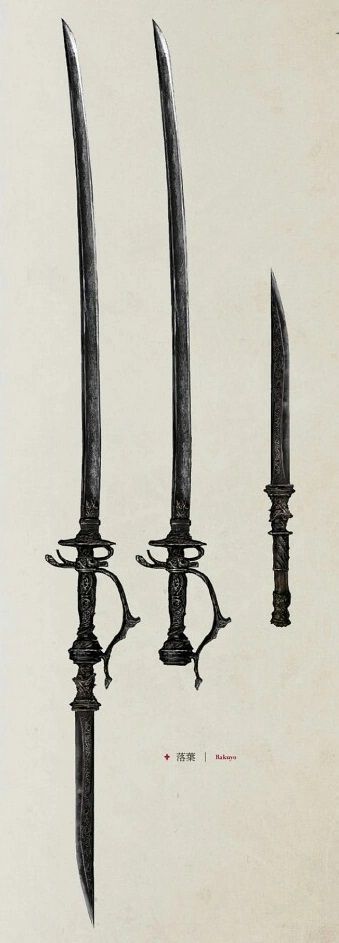
Ascension Form:
(A/N: Imagine he has 6x white Angel wings.)
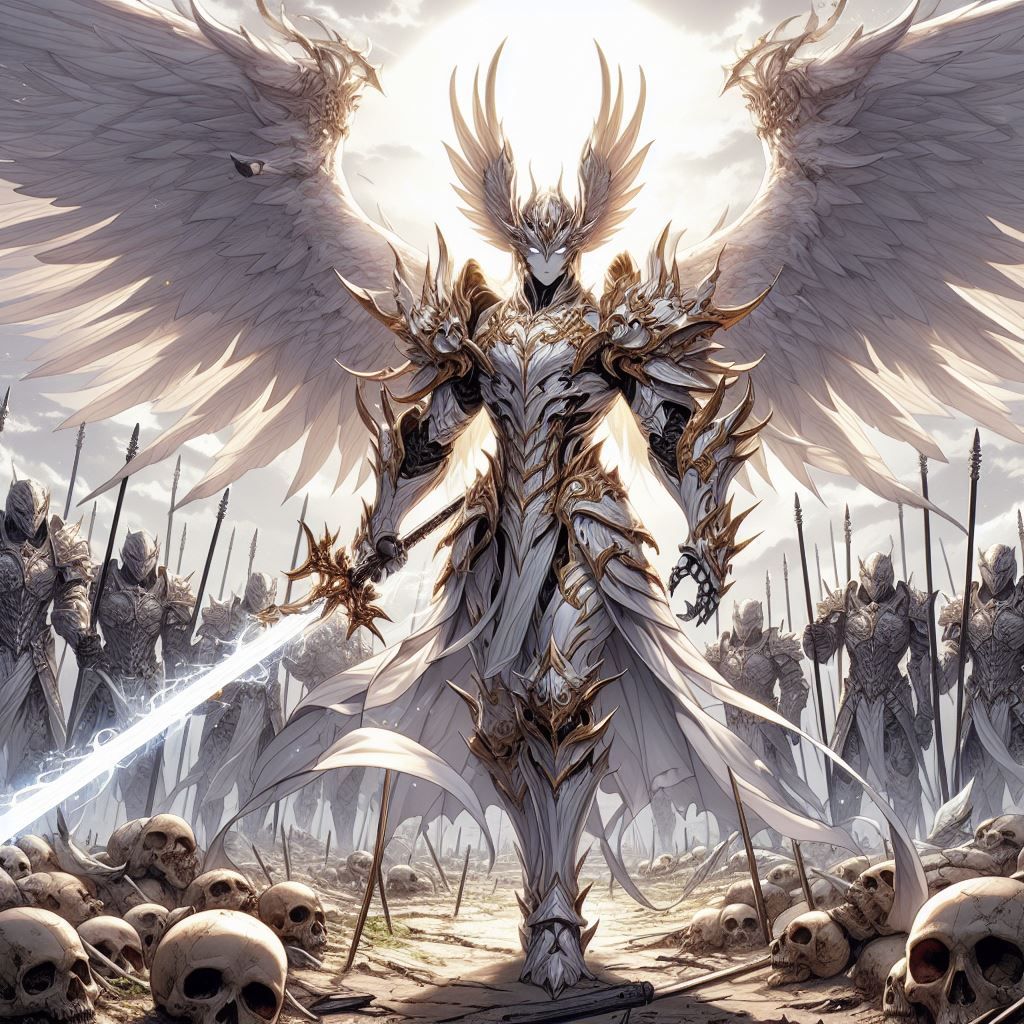
Fallen Ascension Form:
(A/N: Imagine he has 6x black Angel wings.)
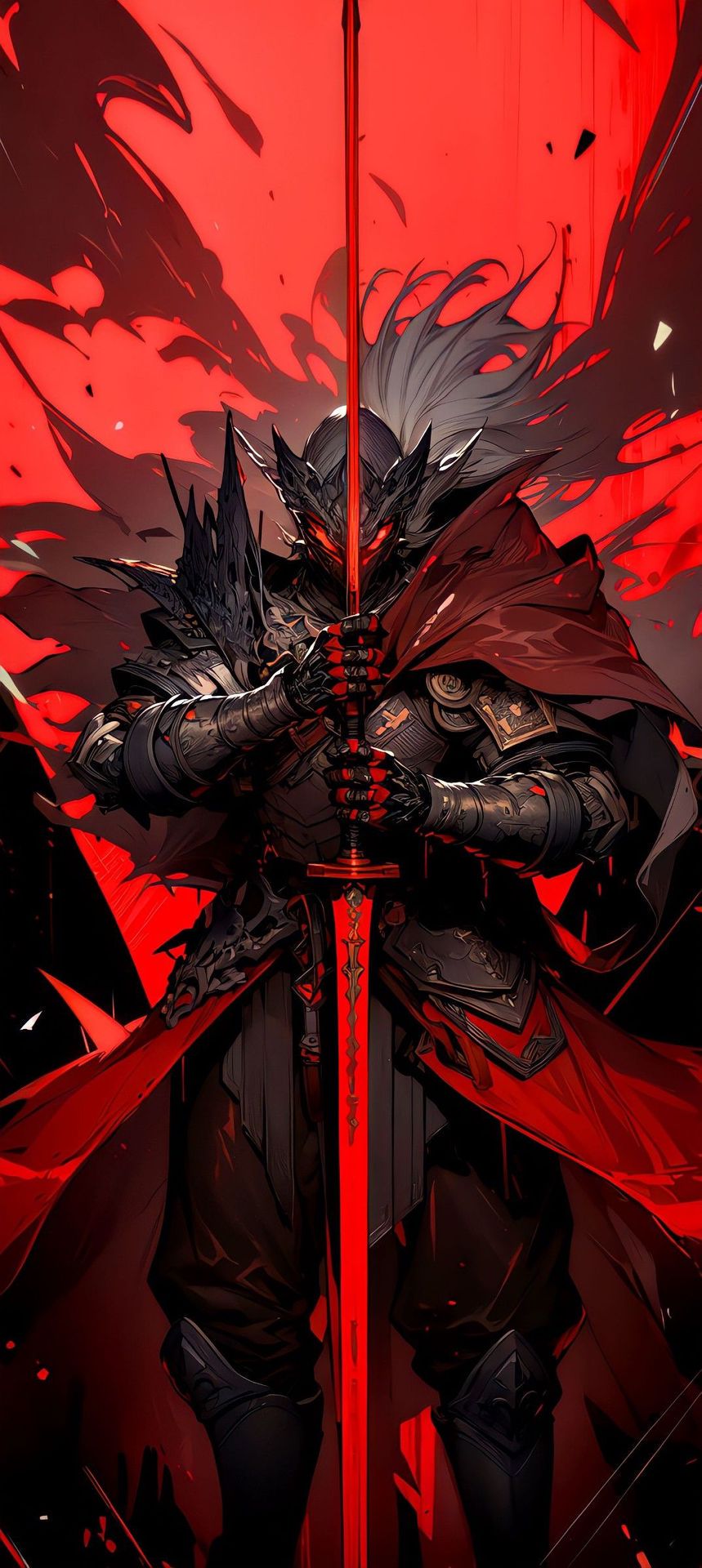
========== (00) ========== (00) ==========
Name: Charlotte 'Charlie' von Hohenzollern
Real Name: Charlotte Luise Adelheid Novakowska
Looks:
(Child)

(Teenager)
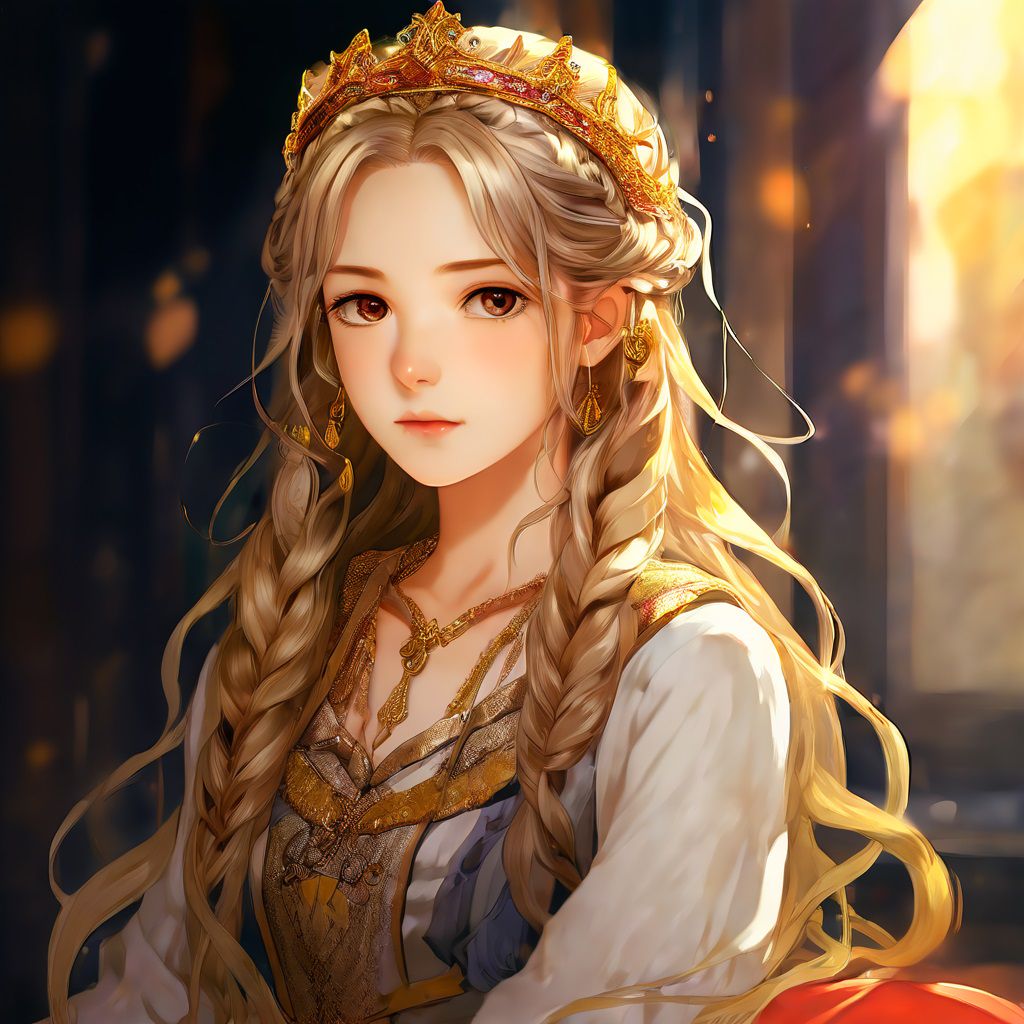
(Adult)
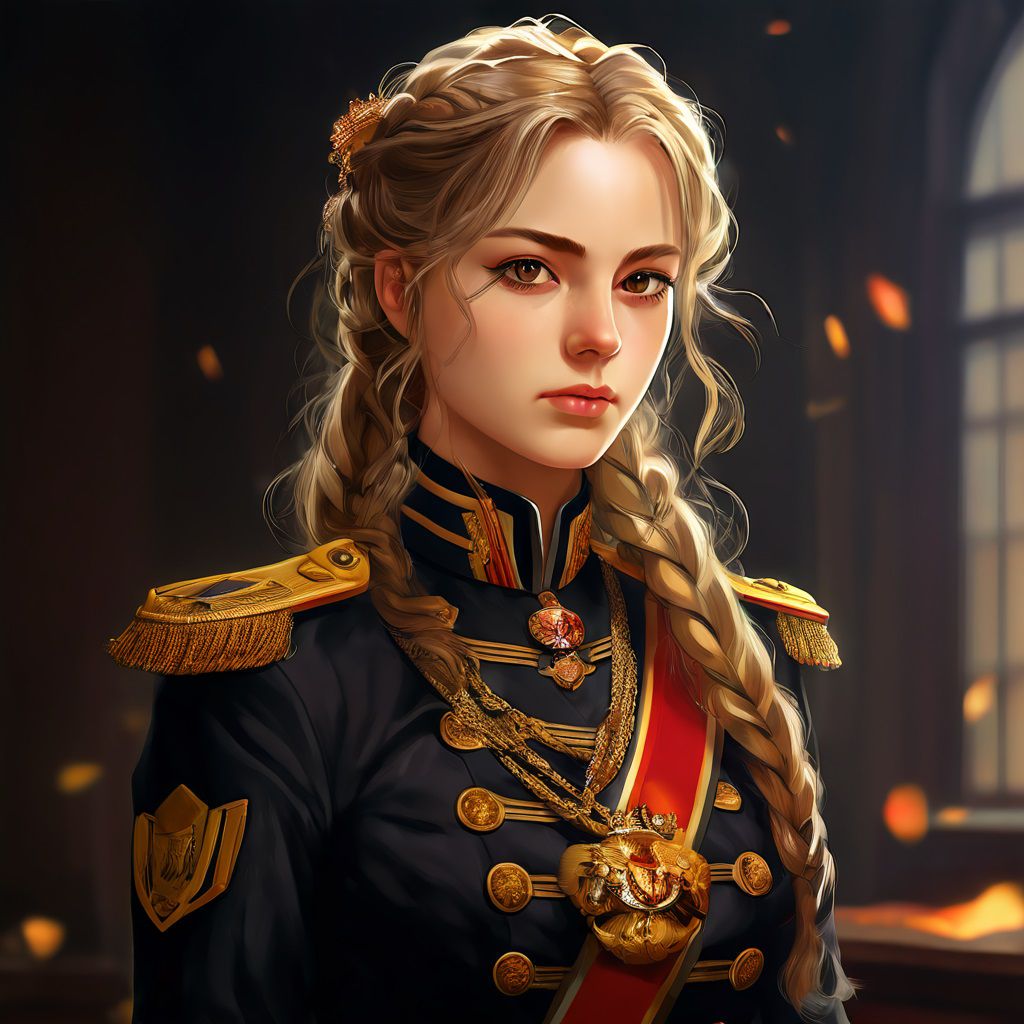
Nickname:
The Ice Princess (Die Eissprinzessin)
The Enigma (Das Rätsel)
The Crown Jewel (Das Kronenjuwel)
The Silent Sentinel (Der stille Wächter)
The One-Word Wonder (Das Einwortwunder)
Species:
-Arch-Nephilim (Half-Human/Half-Archangel) (Formally)
-Angel (Archangel) (Currently)
Nationality: German (German Empire)
Ethnicity: German (Prussian) – Slavic (Polish – Russian [Cossack and Siberian])
Home Country: (Germany) German Empire
Gender: Female
Date of Birth: February 29, 1956
Age:
Child = 7
Teenager = 18
Adult = 25
Eye Color: Gold
Hair Color: Blonde
Aura Color: Golden
Famous Quotes:
"One-Word Language" Quotes:
-"Unnecessary."
-"Irrelevant."
-"Adequate."
-"Proceed."
-"Unacceptable."
-"Tolerable."
-"Intriguing."
-"Satisfactory."
"One-Word Language" Furious Quotes:
-"Unacceptable."
-"Inexcusable."
-"Infuriating."
-"Contemptible."
-"Disgraceful."
-"Deplorable."
-"Unforgivable."
-"Abhorrent."
"One-Word Language" Threat Quotes:
-"Annihilation."
-"Obliteration."
-"Devastation."
-"Retribution."
-"Ruin."
-"Decimation."
-"Eradication."
-"Vengeance."
Full Sentence Quotes:
-"The stagnation of our scientific progress is unacceptable. We must push the boundaries of knowledge, no matter the cost."
-"Your petty political maneuverings are of little consequence to me. I have far more pressing matters to attend to."
-"If you wish to earn my audience, you must demonstrate a level of intellectual rigor that is currently lacking. Prove your worth, and I may deign to hear you out."
-"The future of the empire rests upon our ability to harness the power of technology and dark magic. Anything less than total commitment to this goal is a betrayal of our legacy."
-"I have no time for the inane squabbles of the court. When you are ready to have a meaningful discussion about the advancement of our nation, you may seek my counsel."
-"Your proposal is, at best, a superficial attempt to appease the masses. If you truly wish to serve the empire, you will need to think with a far more ambitious and visionary mindset."
-"Your proposal is flawed and will only serve to hinder the progress of the Reich. I will not waste my time entertaining such shortsightedness."
-"The arrogance of your assumptions is astounding. Do not presume to know the intricacies of my work or the machinations of my mind."
-"If you wish to prove your worth, then you will submit to a rigorous examination of your capabilities. I have no patience for those who cannot keep pace with my intellect."
-"This discussion is beneath me. You would do well to focus your efforts on more productive endeavors that serve the greater good of the Fatherland."
-"Your incompetence is an insult to the legacy of our forebears. I will not allow your failings to jeopardize the future of the Reich."
-"I have little interest in your petty squabbles. When you are ready to have a meaningful discourse, you may seek my counsel. Until then, do not waste my time."
Full Sentence Furious Quotes:
-"You dare to insult the legacy of my forebears with your pathetic display of incompetence? I should have you summarily executed for such egregious insolence."
-"The depths of your stupidity know no bounds. I cannot fathom how you managed to draw breath, let alone occupy a position of authority within my Reich."
-"I had thought you merely arrogant and foolish, but now I see your transgressions are far more grievous. You have betrayed the trust of the Fatherland, and for that, there can be no forgiveness."
-"Your wretched attempt at subterfuge is an insult to my intelligence. Did you truly believe I would not uncover your treacherous machinations? You will pay dearly for your arrogance."
-"The sheer audacity of your actions is astounding. You have tarnished the honor of our family name, and I will not rest until I have seen you brought to ruin."
-"Enough of your pathetic excuses! Your incompetence has endangered the very fabric of our society. You have forfeited any right to my mercy or consideration."
Full Sentence Threat Quotes:
-"You have committed the gravest of sins by daring to lay a hand upon those I hold dear. Rest assured, the full might of the Deutsches Kaiserreich will descend upon you, and when I am through, you will beg for the sweet release of death to end your misery."
-"The audacity of your actions is unconscionable. You have sealed your fate by threatening that which I cherish most. Prepare to face the wrath of a thousand years of Prussian fury – your pitiful existence will be wiped from the annals of history."
-"You are a disease that has infected the very fabric of our society. I will purge you and all your wretched kind from existence, that the pure and noble may rise to their rightful place of dominance."
- "Your pathetic attempts at harming my loved ones have only served to incite my rage. I will reduce you and all you hold dear to ashes, and from the ruins, I will erect a monument to my triumph over your insignificant life."
-"You have trespassed upon that which is mine, and for that, there can be no forgiveness. I will unleash the full fury of the German war machine upon you, and when the smoke clears, your name will be but a distant memory, a cautionary tale of those who dared to cross the House of Hohenzollern."
-"Your transgressions are unforgivable. I will personally oversee your utter annihilation, ensuring that your suffering is prolonged and exquisite. When I am finished, you will beg for the sweet release of death, but I will deny you even that mercy."
-"You have awakened the sleeping dragon, and now you shall feel the full extent of its wrath. I will grind you and your pathetic ilk into the dirt, erasing your very existence from the face of the Earth. Your legacy will be one of abject failure and ruination."
Parents:
Friedrich IV (Father)
Wilhelmina Strasse (Mother)
Background: Born in the year 1956 in Berlin, German Empire, just 2 years after the 'Final Conflict', Charlotte von Hohenzollern is once an Arch-Nephilim and now an Archangel. She is the elder daughter of Friedrich IV – the Kaiser of the Deutsches Kaiserreich, a former Nephilim and now an Archangel – and Wilhelmina Strasse – the Kaiserin of the Deutsches Kaiserreich. She is the older twin sister to Leopold von Hohenzollern, and the granddaughter of Osman and Viktoria. She is also Neo Angelo's niece and Soren Angelo's cousin. Additionally, Charlotte is Sophiel and Alexandrael's niece, and Wilhelm and Adolf's cousin – who are the sons of Falken Gustav, Armina von Hohenzollern, and Maria Annabelle.
From a very young age, it was clear that Princess Charlotte von Hohenzollern was destined for greatness. Like her mother, Wilhelmina Strasse, Charlotte exhibited prodigious intellectual abilities that marked her as a true child prodigy. Growing up within the opulent and prestigious halls of the Imperial Palace, Charlotte's education was a top priority from the moment she could walk and talk. As soon as the young Nephilim grew her first wings at the age of 5, she was immersed in a rigorous curriculum that challenged her exceptional mind, covering a vast range of subjects – from the sciences and mathematics to strategic military history and the intricacies of Imperial governance.
Even as a small child, Charlotte demonstrated an insatiable thirst for knowledge and a preternatural talent for mastering complex topics. By the age of 6, she and her younger twin brother, Leopold, had already become junior researchers and assistants in her mother's laboratory, both in the Kaiserreich (Group 935) and the UN (UNDF R&D Department) universes, contributing to Wilhelmina and her colleagues' groundbreaking work in fields that contributed to the humanity of both universes. Under her mother's tutelage, Charlotte delved into the realms of dark magic and technomancy, contributing to Wilhelmina's groundbreaking work in these esoteric fields. Her mother's unique "One-Word" language, shared only with her closest kin, became a vital part of Charlotte's communication and intellectual development.
Despite her young age, Charlotte's keen intellect and analytical prowess often surpassed that of seasoned academics and researchers, such as Ellen Zoe and even her own mother, Wilhelmina. She pored over dense tomes and technical manuals, absorbing information with a rapidity that astounded those around her. This rapid intellectual development only reinforced the weight of her destiny as the future Kaiserin of the German Empire.
As the Crown Princess, Charlotte was acutely aware of the immense responsibilities that awaited her. From an early age, she was groomed to one day ascend the Imperial throne, with her studies and training tailored to equip her with the knowledge, skills, and strategic acumen required to lead the German Empire into a new era of prosperity and power.
Charlotte's upbringing was marked by a combination of rigorous academic discipline and a sense of solemn duty. While her peers were afforded the luxuries of carefree childhood, Charlotte's world was one of intellectual rigor, strategic planning, and a constant awareness of the weight of her future role. As the Crown Princess, Charlotte was groomed from a young age not only as a brilliant scholar, but also as a formidable military strategist and tactician. From an early age, she and Leopold were immersed in the tenets of Prussian militarism by their father, Friedrich IV, imbuing them with a deep respect and understanding of the martial traditions that had long underpinned the power of the German Empire.
Alongside the rigorous academic studies, Sophiel, Alexandrael, Charlotte, Leopold, Wilhelm, and Adolf were enrolled in the prestigious Kriegsakademie in Berlin, the crown jewel of the German Empire's military education system, where they received intensive training in military history, strategy, and combat techniques. The Kriegsakademie, founded in 1810 and modeled after the renowned École Militaire in Paris, was renowned for its uncompromising curriculum and its commitment to producing the most skilled and disciplined military leaders in all of Europe. Additionally, the academy was also known for its uncompromising curriculum and its commitment to instilling the values of discipline, honor, and unwavering loyalty in its students.
In addition to the military and scientific training, Charlotte and Leopold also studied at the prestigious Humboldt University of Berlin, where they quickly established a reputation as true polymaths. While continuing their roles as junior researchers and assistants to their mother, as well as cadets of the Kriegsakademie, Charlotte and Leopold excelled in a wide range of academic disciplines, from the humanities to the natural sciences.
Their professors were amazed by their abilities to grasp complex concepts with ease and their insatiable thirst for knowledge. Charlotte and Leopold often contributed original ideas and research to their coursework, frequently surpassing the expectations of their instructors. The Royal twins became known for their interdisciplinary approach, seamlessly integrating insights from various fields to solve problems and push the boundaries of human understanding.
Despite the demands of their royal duties and scientific work, Charlotte and Leopold devoted themselves wholeheartedly to their studies at the Humboldt University. The twins spent long hours in the library, poring over ancient texts and the latest scholarly publications, always seeking to expand the frontiers of their knowledge.
This multifaceted approach to Charlotte and Leopold's upbringing has imbued them with a unique blend of skills and perspectives. The twins are not only brilliant strategists and tacticians, but also cutting-edge researchers and well-rounded scholars, capable of navigating the complexities of Imperial governance and the rapidly evolving technological and scientific landscape.
Because of this, Kuro created the alter egos of Charlotte and Leopold to assist them, in which Charlotte named her alter ego Kanade, and Leopold named his alter ego Yukio.
Additionally, under the tutelage of seasoned military tacticians and strategists, Charlotte honed her natural abilities at the Kriegsakademie, developing a keen eye for detail, a mastery of battlefield tactics, and an innate understanding of the interplay between military might and political power. Her training at this esteemed institution not only complemented her intellectual pursuits but also solidified her position as a true embodiment of the German Empire's military heritage.
The Kriegsakademie's curriculum was designed to push its students to the absolute limits of their physical and mental capabilities. The training regimen at the Kriegsakademie was notoriously brutal, even for the most seasoned of soldiers. Charlotte's days were filled with rigorous and relentless drills, punishing physical exercises, intensive wargaming exercises and simulations, and in-depth studies of military history and strategy that pushed her to the brink of endurance. Instructors were known to employ harsh disciplinary measures, including corporal punishment, to ensure that their students were forged into the perfect embodiment of Prussian military might.
Despite her young age, Charlotte was subjected to the same grueling training as her older, more experienced peers. She was forced to march for miles on end, carry heavy loads of equipment, and engage in hand-to-hand combat exercises that left her battered and bruised, under the tutelage of the Archangels, specifically Michael, Osman, and Lucifer, including Neo Angelo and the Russian general werewolf called Koshkov Zegrath. The instructors, including the mentioned Archangels of Heaven, showed no mercy, pushing the young Nephilim to the very limits of her physical and mental capabilities, intent on molding her into a fearless and unstoppable force on the battlefield. And she excelled in this demanding environment, quickly rising to the top of her class and earning the respect and admiration of her instructors.
Many of Charlotte's fellow students succumbed to the rigors of the training, some even losing their lives in the process. But the Crown Princess remained undaunted, driven by an unrelenting determination to excel and to prove her worth as a future military leader of the German Empire.
This militaristic mindset, combined with her exceptional intelligence and strategic acumen, made Charlotte a formidable presence, both on the battlefield and in the corridors of power. She was able to seamlessly blend the rigors of military discipline with the nuances of political maneuvering, allowing her to anticipate and outmaneuver her opponents with a ruthless efficiency that was reminiscent of the great Prussian generals of the past.
As the Crown Princess, Charlotte's military training and her deep understanding of the German Empire's martial history only strengthened her sense of duty and her commitment to upholding the legacy of the Imperial throne. She was driven by a fervent belief in the power of the German military, and she was determined to ensure that the Empire remained a dominant force on the global stage.
This fusion of intellectual prowess and military expertise made Charlotte a truly formidable individual, one who was not only respected for her brilliant mind but also feared for her unyielding determination and her willingness to employ the full might of the German military to achieve her goals.
This intense focus and sense of purpose, however, did not come without its costs. Both Charlotte and Leopold developed a reserved and aloof persona, often retreating into their own minds and preferring the solace of their studies over the company of others. Like their mother, she, Leopold, and Wilhelmina shared a unique "One-Word" language, further reinforcing their exclusivity and detachment from the outside world.
Yet, despite the burdens of her position and the lonely path she walked, Charlotte remained fiercely loyal to her family and her country. She was driven by an unwavering sense of duty, a desire to uphold the legacy of the German Empire, and a determination to become the most capable and formidable Empress the world had ever seen.
As Charlotte blossomed into her teenage years, the instructors at the Kriegsakademie intensified her training regimen to unprecedented levels of rigor and intensity. Gone were the days of mere physical drills and wargaming simulations; now, Charlotte was subjected to a relentless gauntlet of harrowing exercises that tested the very boundaries of her family's supernatural abilities' capability.
The young Nephilim Crown Princess was forced to undergo extended wilderness survival training, where she, her younger twin brother, aunts, and cousins were abandoned in remote, unforgiving terrain of Russia, both UN Russia and the Russian Empire during the military training exchange, and left to fend for themselves for days, even weeks or months, on end. Deprived of food, water, and any creature comforts, they were compelled to push their bodies to the brink of collapse, navigating treacherous terrain, evading predators such as demons, and relying solely on their wits and their military training to stay alive.
In addition to these grueling survival exercises, Charlotte was also made to participate in high-intensity combat drills that often resulted in severe injuries. Instructors would pit her, her brother, aunts, cousins, and fellow students against each other in brutal hand-to-hand combat sessions, using live ammunition and employing tactics designed to mimic the chaos and brutality of the battlefield under the supervision of Koshkov Zegrath – a Russian General who is a veteran, a werewolf, and a valuable asset to the UN as its personnel.
Many of Charlotte's classmates were unable to withstand the sheer ferocity of these training regimens, succumbing to their wounds or simply buckling under the immense physical and mental strain. But the Crown Princess, driven by an unwavering determination to excel and a deep-seated belief in the power of the German military, refused to yield.
Day after day, week after week, Charlotte and the others pushed themselves to the brink of collapse, refusing to show any sign of weakness or fear. Their instructors, once skeptical of their abilities, were now awestruck by their unwavering fortitude and their uncanny ability to adapt and thrive in the most punishing of environments, even Koshkov was a little bit impressed as Charlotte and her family earned his respect little by little.
This unrelenting training, coupled with her exceptional intellect and strategic prowess, forged Charlotte into a true force to be reckoned with – a military prodigy whose skills and tenacity were unmatched by even the most seasoned veterans of the German armed forces.
At the tender age of 16, she and her brother graduated from the prestigious Humboldt University of Berlin, having not only completed their studies with the highest honors, but also earning multiple advanced degrees in a diverse range of fields as their transformation into formidable young intellectuals and researchers became even more pronounced. Additionally, after graduating from the Kriegsakademie, Charlotte embarked on the next phase of her path to becoming the future Empress of the German Empire.
During her time at the university, Charlotte's reputation as a true polymath only grew stronger. Her professors marveled at her ability to seamlessly integrate insights from various disciplines, consistently pushing the boundaries of academic discourse. While continuing her role as a junior researcher and assistant to her mother, Wilhelmina, Charlotte's contributions to Wilhelmina's groundbreaking work were invaluable.
As Charlotte transitioned into her teenage years, her aloof and distant demeanor, reminiscent of her mother, became even more pronounced. She remained intensely focused on her intellectual pursuits, often retreating into solitude to delve deeper into her research and studies. The "One-Word" language that she and Leopold shared with Wilhelmina became an even more integral part of their communication, a coded tongue that allowed them to discuss their esoteric work in complete secrecy.
Despite her young age, Charlotte's commanding presence and sheer intellect were undeniable. She carried herself with a regal bearing that belied her years, and her sharp wit and incisive analysis were the stuff of legend among her peers and superiors. Even in social settings, Charlotte maintained a graceful, yet unapproachable aura, making it difficult for anyone to truly get close to her.
Concurrently, Charlotte and Leopold attended the prestigious Royal Prussian Academy of Sciences, where the twins indulged their scientific ambitions and intellectual curiosity that they had inherited from their mother. At the academy, the Royal twins immersed themselves in a rigorous course of study, delving deep into fields such as mathematics, engineering, and the natural sciences. Their thirst for knowledge was insatiable, and they quickly established themselves as two of the brightest minds of their generation, earning the admiration of their professors and their fellow students alike.
This dual-track education, encompassing both the practical realities of political leadership and the boundless potential of scientific exploration, perfectly complemented Charlotte's unique talents and aspirations. She excelled in both realms, seamlessly blending her military expertise, her strategic acumen, and her intellectual prowess to become a truly formidable and multifaceted individual.
As she approached the completion of her studies, Charlotte's reputation as a rising star within the German Empire only continued to grow, with many within the royal court and the military eagerly anticipating the day when she would assume her rightful place as the Empress of the German people.
At the age of 18, Charlotte and Leopold were forced to postpone their studies at the Royal Prussian Academy of Sciences when their family, especially their grandparent, father, and aunt, had them enlisted and join the Vanguard Squad after their cousin, Soren, and his friends graduated from the academies. From there, Charlotte was selected as the Second-in-Command of the team. Originally, the Vanguard Squad once had 8 members, comprised of: Soren Angelo, Tanya von Gregor, Moroha Li Shen, Sophiel von Hohenzollern, Wilhelm von Hohenzollern, Adolf von Hohenzollern, and finally, herself and her brother, Leopold von Hohenzollern. The Vanguard Squad slowly and surely grew from a bunch of mismatched misfits to become one of the most combat effective squads in the United Nations during 1974 – 1979 in the Kaiserreich universe, which in the UN universe is 2050 – 2055.
In five years, the Vanguard Squad had been responsible for dealing with threats that still lingered around, along with the resurgent group of the Illuminati. During that time, in 1976, Leopold accidentally teleported himself to another world in another universe during his Angelic training. Despite being cold-hearted and aloof, Charlotte became anxious and worried about her brother, but she and Soren had to calm their teammates as their leaders. A few hours passed, and Leo returned, much to Charlie's relief as she hugged him, but she quickly turned confused and surprised to see a blonde-haired little girl, who must be at the age of 9 or 10, hiding behind her brother's leg in fear. Then, Leopold told the team that they would have a family meeting in the Berlin Royal Palace as he asked Soren to call his parents over.
Once the family was gathered at the Palace, Charlotte learned how Leopold had landed in an alternate world during the ancient time in another universe, how he had discovered Ymir – the name of the girl who was with him, and the following events where he had murdered Ymir's slavers in cold blood, while freeing the slaves and giving them gold to start a new life.
Then, he revealed that Ymir had supernatural powers, which the blonde-haired girl demonstrated when she bit her hand and transformed into a Titan at an open field, after struggling to find how this power worked, which surprised and shocked her to see a little girl possessive such powers. Alarmed by this, Charlotte's uncle, Neo Angelo, quickly used his Primordial powers and found the source of the power. After Leo asked Neo to do it, the Primordial God wasted no time and used his powers to pull the source, a spinal-worm like creature, out of Ymir's spine as he then healed her and held the creature in a glass jar.
Once done, Neo asked his nephew what he would do with Ymir now, in which Leo shocked and surprised his family by stating that he would adopt her, making her his daughter and a Princess of the Empire. Though unsure at first, Neo decided to allow Ymir to live in their universe, with Leo's parents having the final say on whether to adopt the girl into the family or not. Of course, Friedrich IV and Wilhelmina Strasse agreed and took her in as one of their own.
Meanwhile, Leo's grandparents, uncles, aunts, cousins, and friends questioned whether it was alright for him to adopt Ymir as his own. When Leo stated that he was determined to give her a normal life, they all pitched in to help Ymir recover from her trauma and PTSD, and to help her adjust to her new life - a better life for her. Ymir quickly burst into tears of joy and called Leo her Papa, igniting the fatherly love and paternal feelings within Leopold as he saw her as his own daughter. Meanwhile, Charlotte smiled proudly at her little twin brother as she was overjoyed at the fact that she became an aunt at the age of 20.
At the ages between 21 and 23, Charlotte, Leopold, Alexandrael, Wilhelm, and Adolf had to leave the team in order to continue and complete their studies. In her spare time, Charlotte would spend playing with Ymir as she helped her heal and recover from the psychological trauma she had endured as a slave, and helped her adapt to her new life. Charlotte had to stifle a laugh when she saw how Ymir was shocked and dumbfounded before being amazed at the modern and futuristic worlds and their technological advancements, especially since both factions had the capabilities to go and explore the stars – an understandable reaction, given that Ymir was born in the ancient time of her homeworld.
Nonetheless, Charlotte was happy to see how Ymir slowly, but surely, recovered from her trauma and became a beautiful maiden upon reaching her teenage years over the years. During that time, Charlotte tutored and courted Ymir to adapt her life as a member of the Hohenzollern Royal family, teaching her history, military, and various subjects, making her the proper Princess of the German Empire. Additionally, her family also helped her, and even turned her into a Parautilitarian, making her an Omega level Parautilitarian to protect herself and her family from the looming threat.
After Charlotte and Leopold graduated from the Royal Prussian Academy of Sciences, Charlotte determined to rejoin the Vanguard Squad as the Second-in-Command, but Leopold refused to join back due to having reasons of his own, including the fact that he had to stay behind to govern the Empire and look after his adopted daughter, while Charlotte was away. Despite not showing emotions, Charlotte felt sad and disappointed that her younger twin brother wouldn't return to the team when he had proven himself to be an excellent commander like her, but she respected her brother's choice and decision when she felt that Leo felt more at home, which led him to become the youngest Chancellor of the German Empire at the age of 23. Not to mention, Charlotte knew her brother had to look after his daughter. The same goes for her cousin, Wilhelm, when he also refused to rejoin the team for the same reason her brother had, as he would marry Princess Hanako Kaguya of the Japanese Empire, but she was somewhat glad, relieved, and happy to see Alexandrael and Adolf rejoin the team after graduation.
In the present day, Charlotte continues to fight for the UNDF, the ICC, and their allies against the forces of evil, doing everything possible to keep the peace that her parents and families had fought for, while continuing her role as the Crown Prince and embarking on the path to become the next Empress of the German Empire.
Personality: Crown Princess Charlotte von Hohenzollern is a complex and multifaceted individual, much like her mother Wilhelmina Strasse. On the surface, she presents a cold, distant, and introverted demeanor, often appearing aloof and unapproachable. This stems from a deep-seated preference for solitary pursuits and a singular focus on her intellectual interests, akin to her mother, Wilhelmina Strasse, and great-grandfather, Wilhelm Strasse.
As the Crown Princess of the German Empire, Charlotte is a force to be reckoned with. Her position as the heir apparent to the Imperial throne adds an extra layer of gravity and significance to her already imposing persona.
Charlotte has inherited her family's remarkable intellectual prowess and is a true polymath, excelling in a wide range of scientific disciplines, including those with a focus on dark magic and technomancy. Like her mother, Charlotte typically presents a cold, distant, and introverted demeanor, often appearing aloof and unapproachable. This stems from a deep-seated preference for solitary pursuits and a singular focus on her intellectual interests, which she shares with her great-grandfather.
Like her mother and great-grandfather, Charlotte is driven by an intense ambition and a relentless pursuit of knowledge and scientific advancement. She has inherited the brilliance and unconventional thinking of Albert Einstein, a trait that has allowed her to excel in a wide range of scientific disciplines, including those with a focus on dark magic and technomancy. Despite her mastery of such arcane arts, she shares her mother's scathing denouncement of magic as a hindrance to progress, further highlighting the complexities of her character.
Charlotte's formidable intellect, combined with her position as the Crown Princess, make her a force to be reckoned with. She is a brilliant strategist and tactician, having inherited the strategic acumen and tactical genius of Robb Stark, with a keen analytical mind that allows her to anticipate and outmaneuver her opponents with ease. This strategic acumen is likely influenced by the legacies of figures like Otto von Bismarck and Helmuth von Moltke, as her keen analytical mind and ability to devise complex, multi-layered plans is a testament to her formidable intellect.
However, Charlotte's personality is also shaped by the more extroverted aspects of her lineage. She has inherited the charisma and commanding presence of her great-aunt, Princess Victoria Louise of Prussia, and the forceful personality of her great-grandfather, Kaiser Wilhelm II. This blend of introversion and extroversion makes Charlotte a formidable and multifaceted individual, capable of both cold, distant detachment and assertive, authoritative leadership.
Beneath this icy exterior, however, lies a powerful and passionate core. While Charlotte is generally in full control of her emotions, there are rare moments when she is driven to a state of furious indignation, particularly when her family or loved ones are threatened or harmed. In these instances, Charlotte's passion and fury can be unleashed, her commanding presence and sheer force of will becoming even more pronounced as she unleashes the full extent of her strategic brilliance and ruthless determination to protect those she holds dear. This protective instinct, coupled with her intellectual prowess and strategic acumen, reveals the depth of her emotional capacity and the lengths she will go to defend those she holds dear, making her a force to be reckoned with.
At her core, Charlotte is driven by a sense of duty and a desire to uphold the legacy of the German Empire. Beneath her icy exterior, she possesses the unwavering sense of duty and commitment to her family and her country that was exemplified by the likes of Eddard Stark and Tywin Lannister. She is fiercely loyal to her family and her country, and is willing to make difficult decisions and sacrifices to ensure the continued prosperity and power of the German Empire.
From Daenerys Targaryen, Charlotte has inherited a sense of righteous determination and an unwavering moral compass. She is driven by a deep-seated desire to uphold justice and protect the innocent, even if it means confronting those in positions of power. Finally, Charlotte shares the charisma and commanding presence of Cersei Lannister, allowing her to exert a powerful influence over those around her. Her forcefulness and self-assurance, combined with her strategic brilliance, make her a truly formidable individual.
One distinctive trait that Charlotte shares with her mother, Wilhelmina Strasse, is their selective mutedness and use of a unique "One-Word" language to communicate. Charlotte and Wilhelmina only speak when necessary, and when they do, they often employ this cryptic, one-word vernacular that is only understood within their family. This further reinforces their aloof and disinterested persona, as they maintain a level of exclusivity and detachment from those outside their inner circle.
Overall, Crown Princess Charlotte von Hohenzollern is a complex and imposing figure, a blend of her family's most prominent traits. As the Crown Princess, she wields immense power and influence, tempered by her selective mutedness and the use of a unique "One-Word" language shared only with her mother and close kin. Beneath her icy exterior, however, lies a fierce and passionate protector, ready to unleash her full might to defend those she holds dear. She is a brilliant scientist, a strategic mastermind, and a commanding leader, driven by a sense of duty and a desire to shape the future of the German Empire, all while maintaining a persona of cold, distant indifference that masks the depth of her intellectual and emotional capacities.
Main Weapon: Phoenix Ember
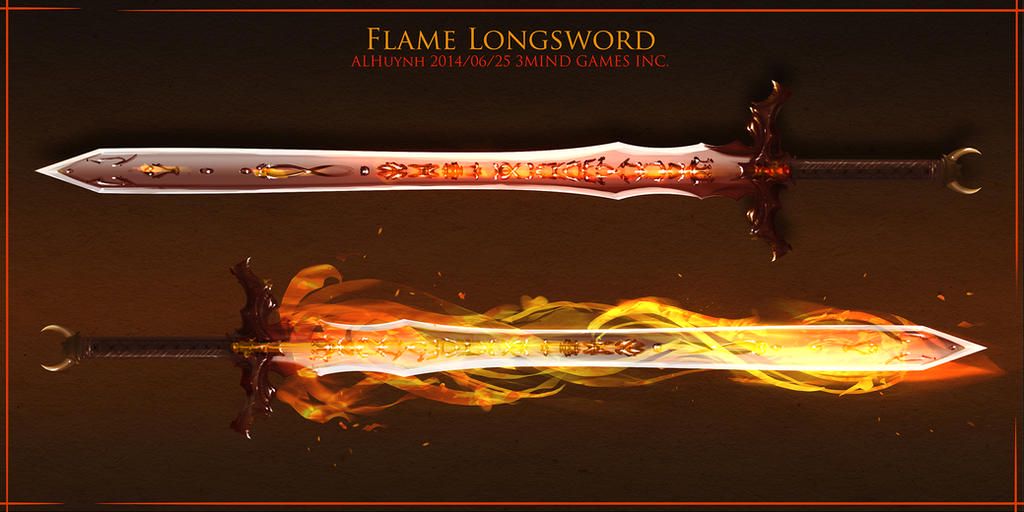
Ascension Form:
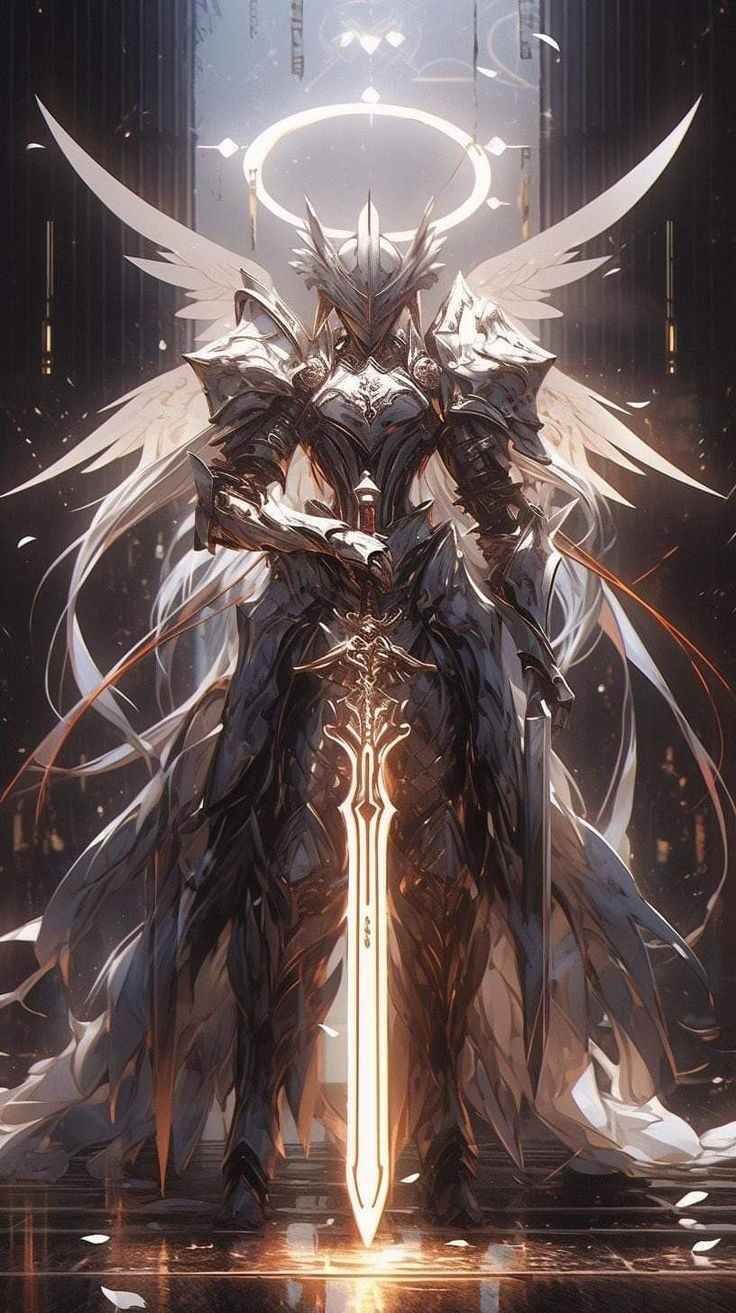
Fallen Ascension Form:
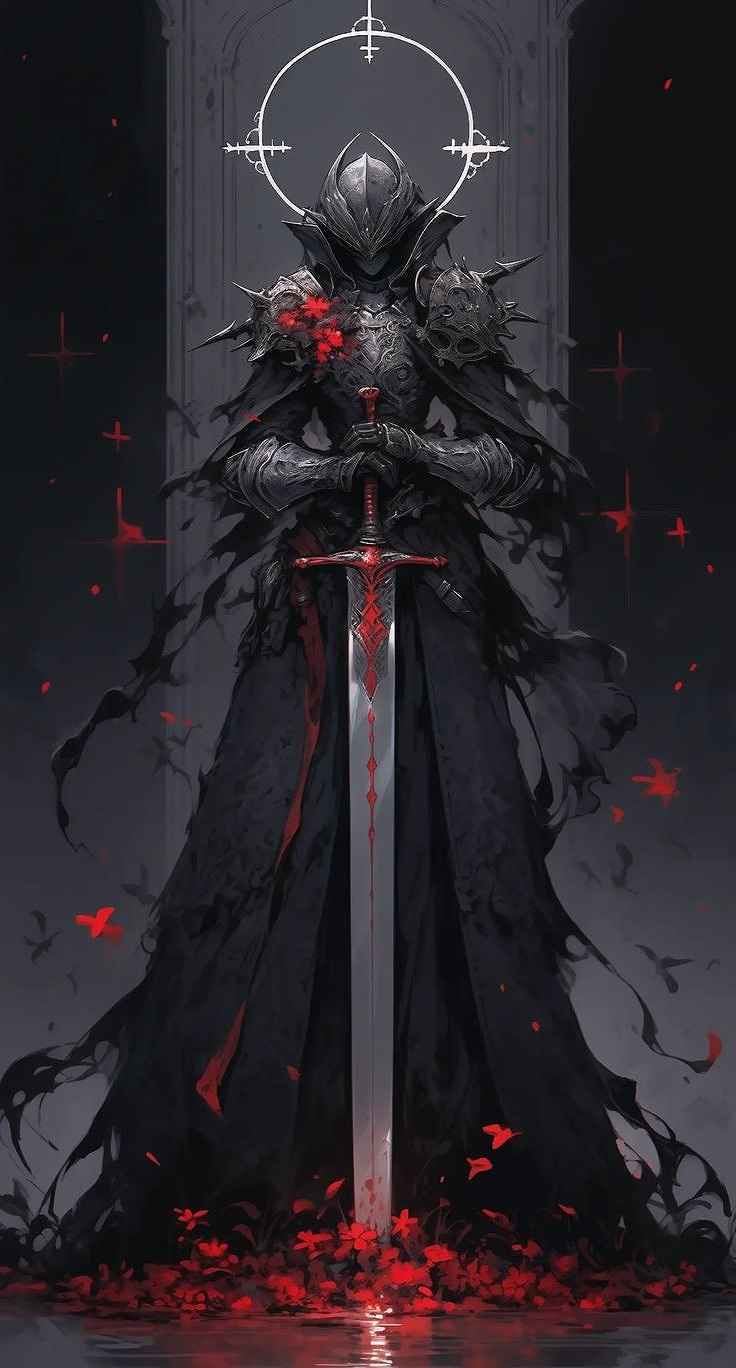
Bạn đang đọc truyện trên: AzTruyen.Top